Introduction to Setting Up a Chessboard
Setting up a chessboard correctly is the first critical step in playing a game of chess. It is important not only to ensure fair play but also to start the game with each piece in its rightful place, ready for strategic deployment. This guide will walk you through the process of setting up a chessboard and placing each chess piece in its correct position.
Understanding the Chessboard Layout
A standard chessboard consists of 64 squares, laid out in an 8x8 grid. The squares alternate in color between light and dark (commonly white and black or beige and brown). The board should be oriented so that each player has a white (or light-colored) square on the bottom right corner of their closest rank (row).
The Ranks and Files
Chess positions are described based on ranks (horizontal rows 1 through 8) and files (vertical columns labeled a through h). The ranks are numbered from the perspective of each player starting from 1 to 8, with Rank 1 being the closest to each player. Files are labeled from 'a' to 'h', left to right, from the perspective of the White player. This orientation changes inversely from the perspective of the Black player.
Placing the Chess Pieces
Each player starts with 16 pieces: one king, one queen, two rooks, two knights, two bishops, and eight pawns. The pieces are arranged symmetrically from the perspective of each player.
Setting up the First and Eighth Ranks
The back rows for both players are set up identically but mirrored:
- Rooks are placed on the corner squares (a1 and h1 for White; a8 and h8 for Black).
- Knights follow next to the rooks (b1 and g1 for White; b8 and g8 for Black).
- Bishops are next, adjacent to the knights (c1 and f1 for White; c8 and f8 for Black).
- Queen finds her spot on the remaining square of her own color, which means d1 for White (since she is placed on a light square) and d8 for Black (on a dark square).
- King occupies the remaining square next to the queen (e1 for White and e8 for Black).
Placing the Pawns
The second rank (a2 to h2 for White and a7 to h7 for Black) is filled with pawns. Pawns are the only pieces that initially block the bishops, queen, and king from moving.
Final Checks Before Starting the Game
Before starting the game, it’s a good practice to verify a couple of things:
- Ensure the board orientation is correct with a white square at the rightmost corner from each player’s perspective.
- Each piece should be placed in its corresponding position as described.
- Confirm that the setup of both sides is mirrored exactly across the board.
Conclusion
Properly setting up a chessboard ensures that the game is played under fair and standardized conditions. Remembering the placement of each piece becomes second nature over time, making the set-up process quick and straightforward. Whether you are a beginner learning the ropes or a seasoned player, a correctly set chessboard is the foundation of the fascinating strategic play that characterizes the game of chess.
Explore our large collection of luxurious chess sets!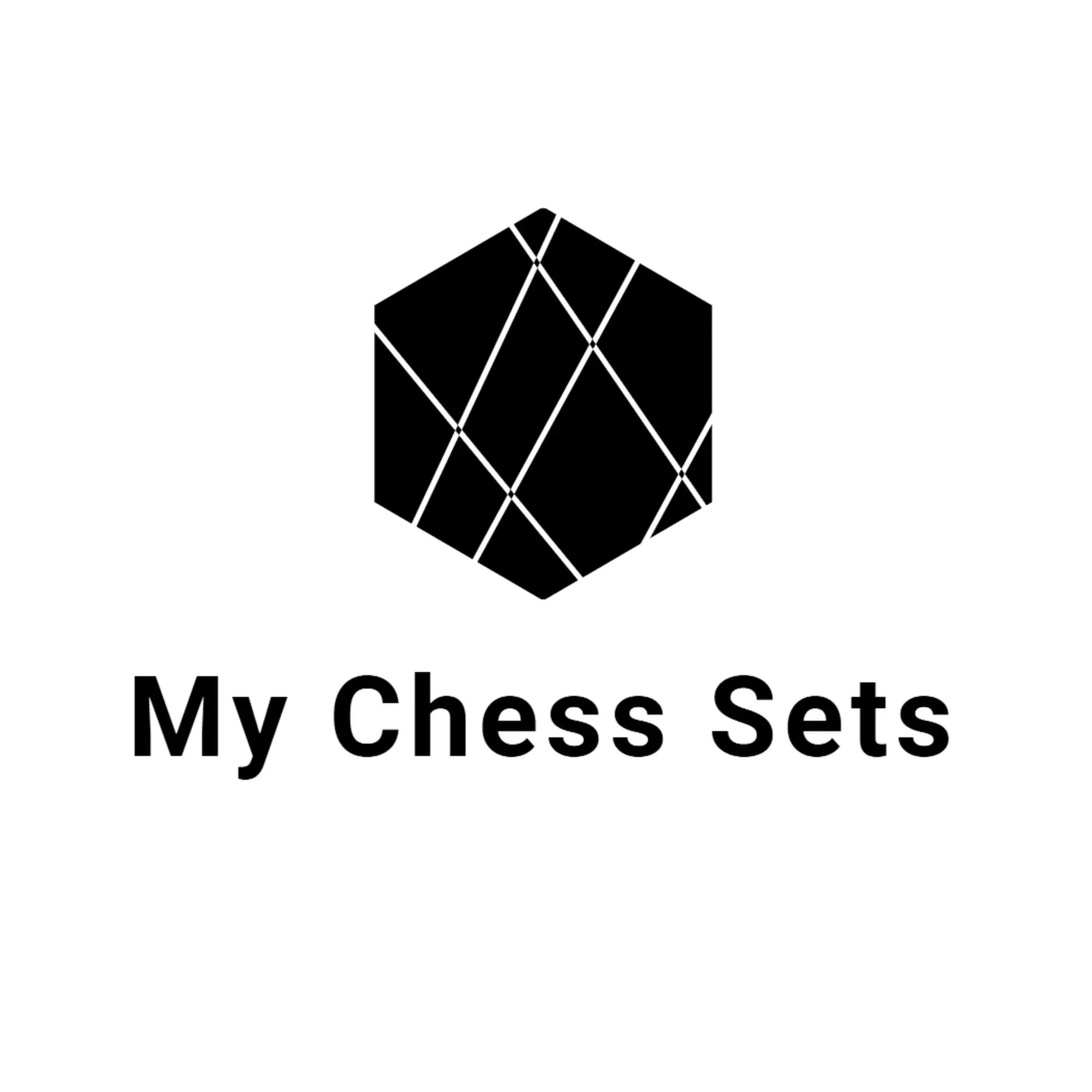
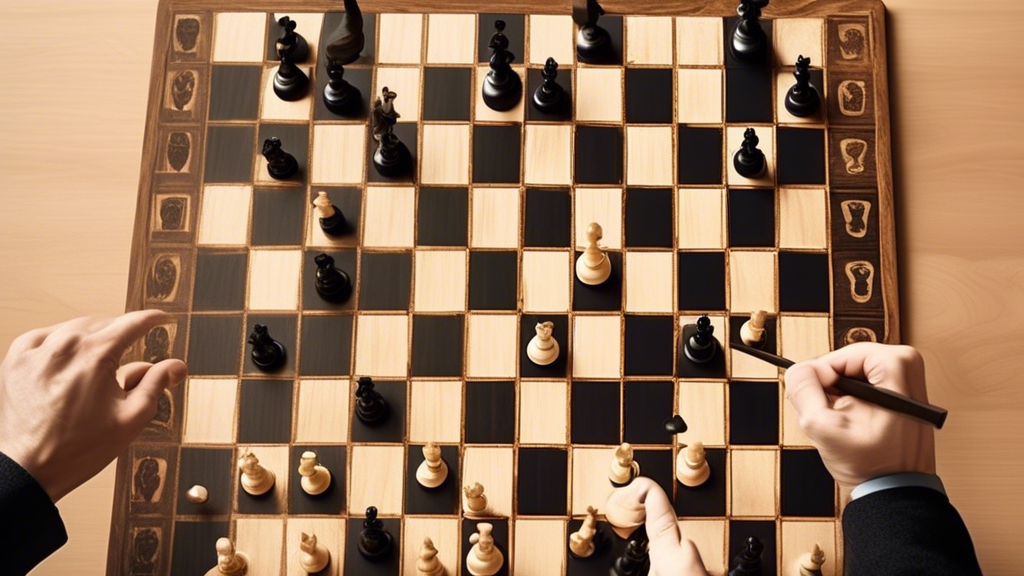
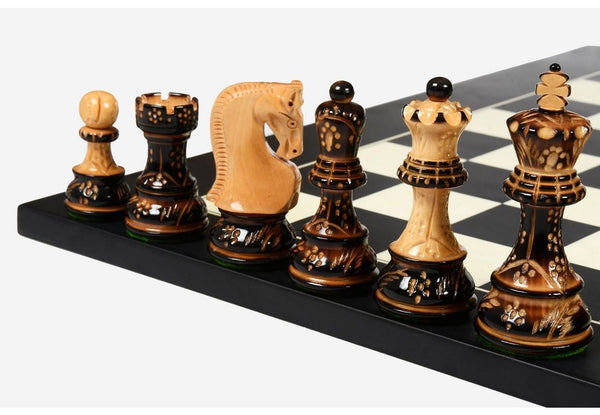
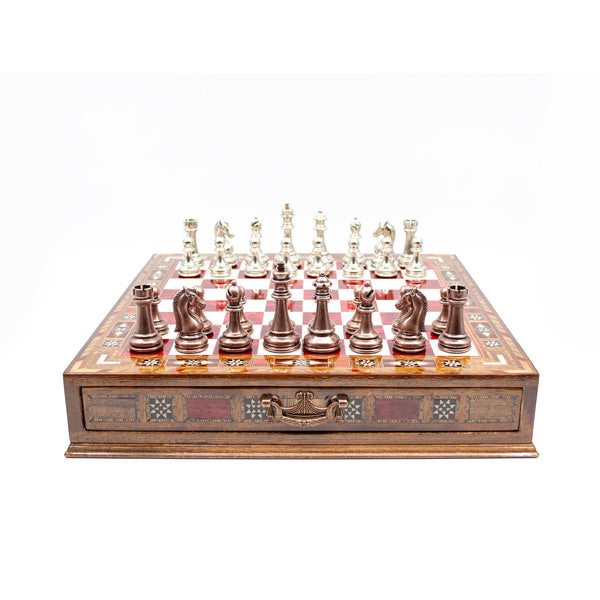
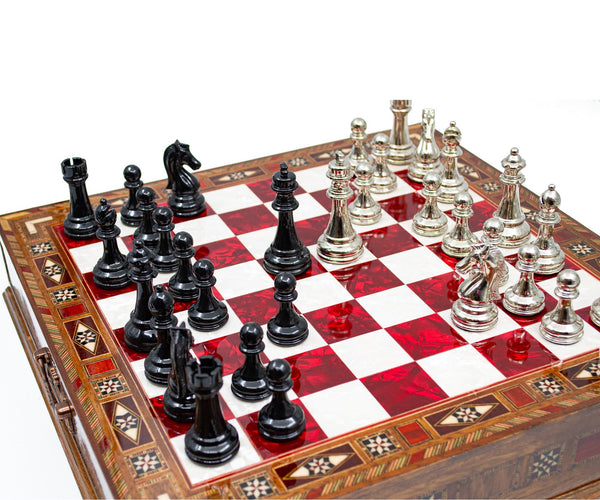
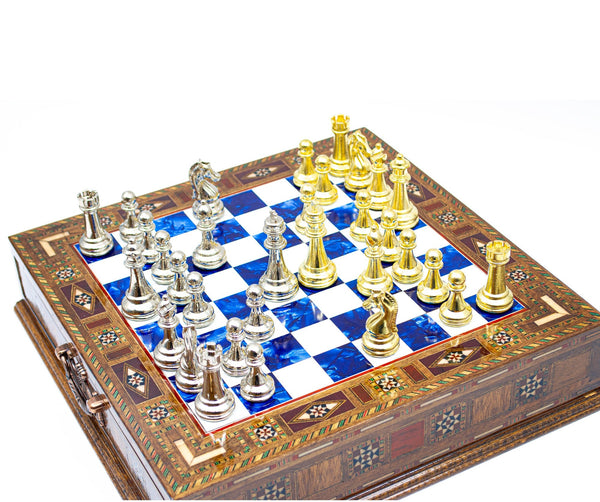
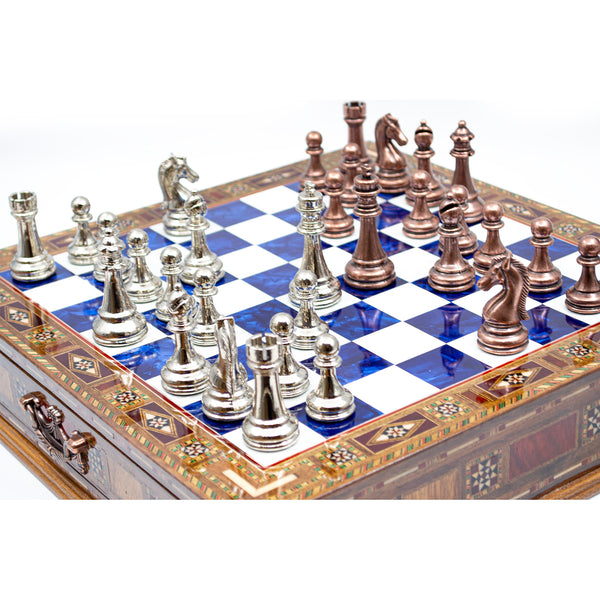
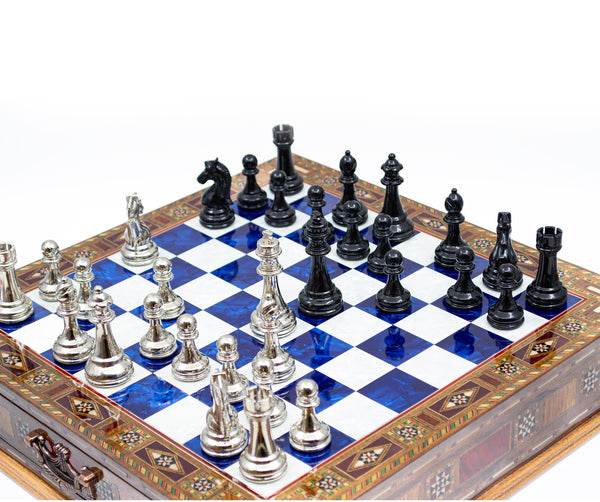
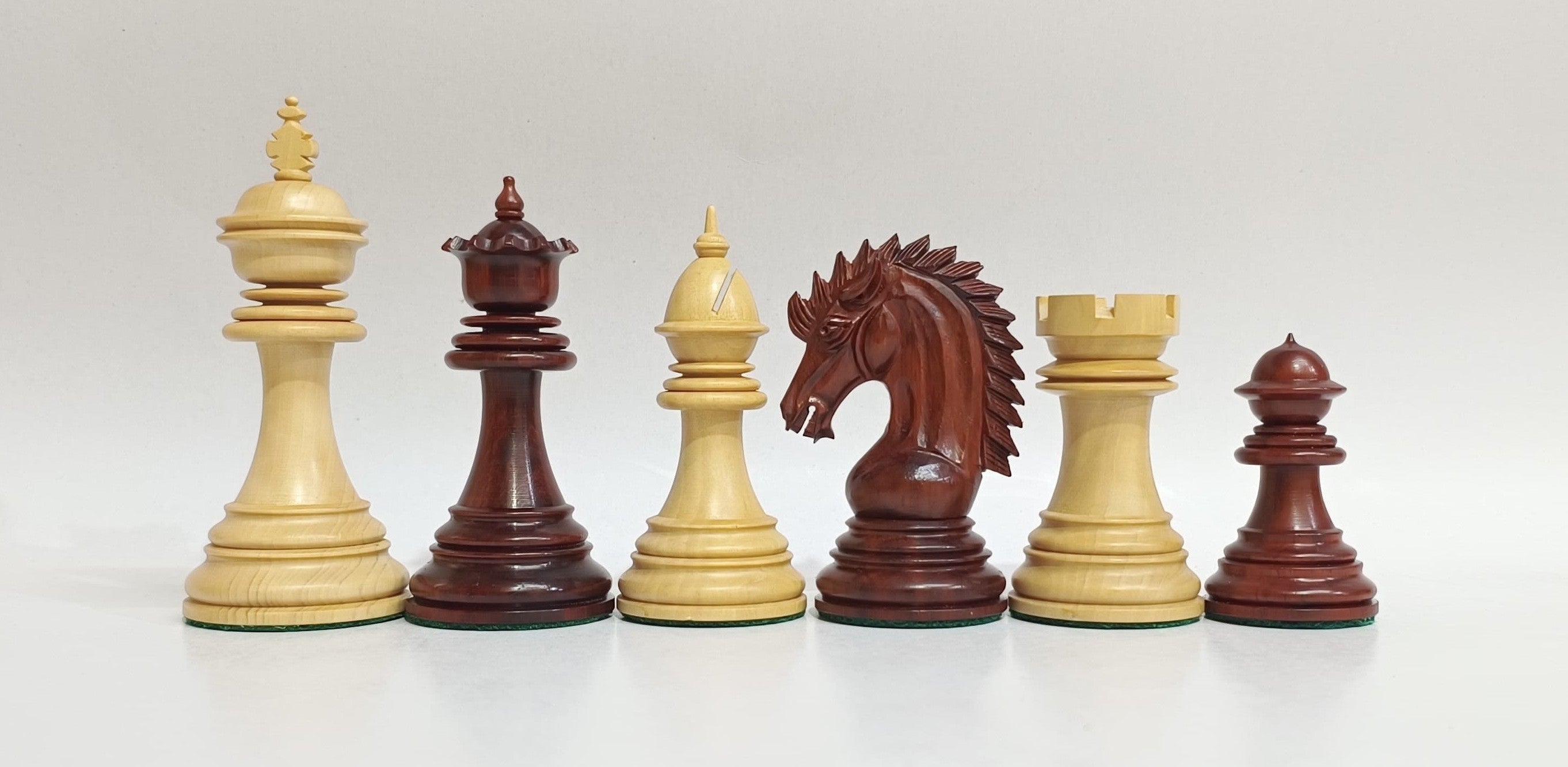
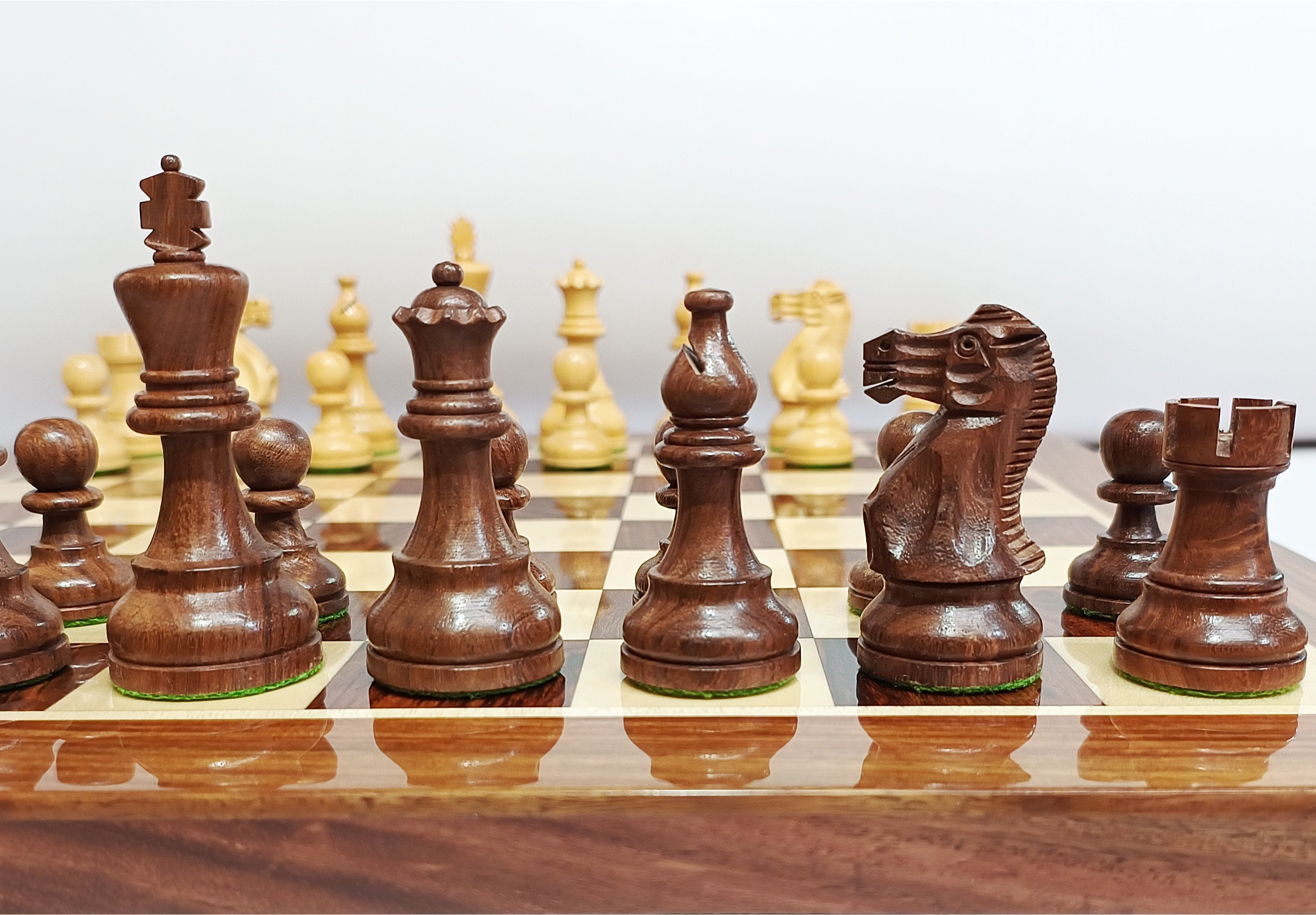
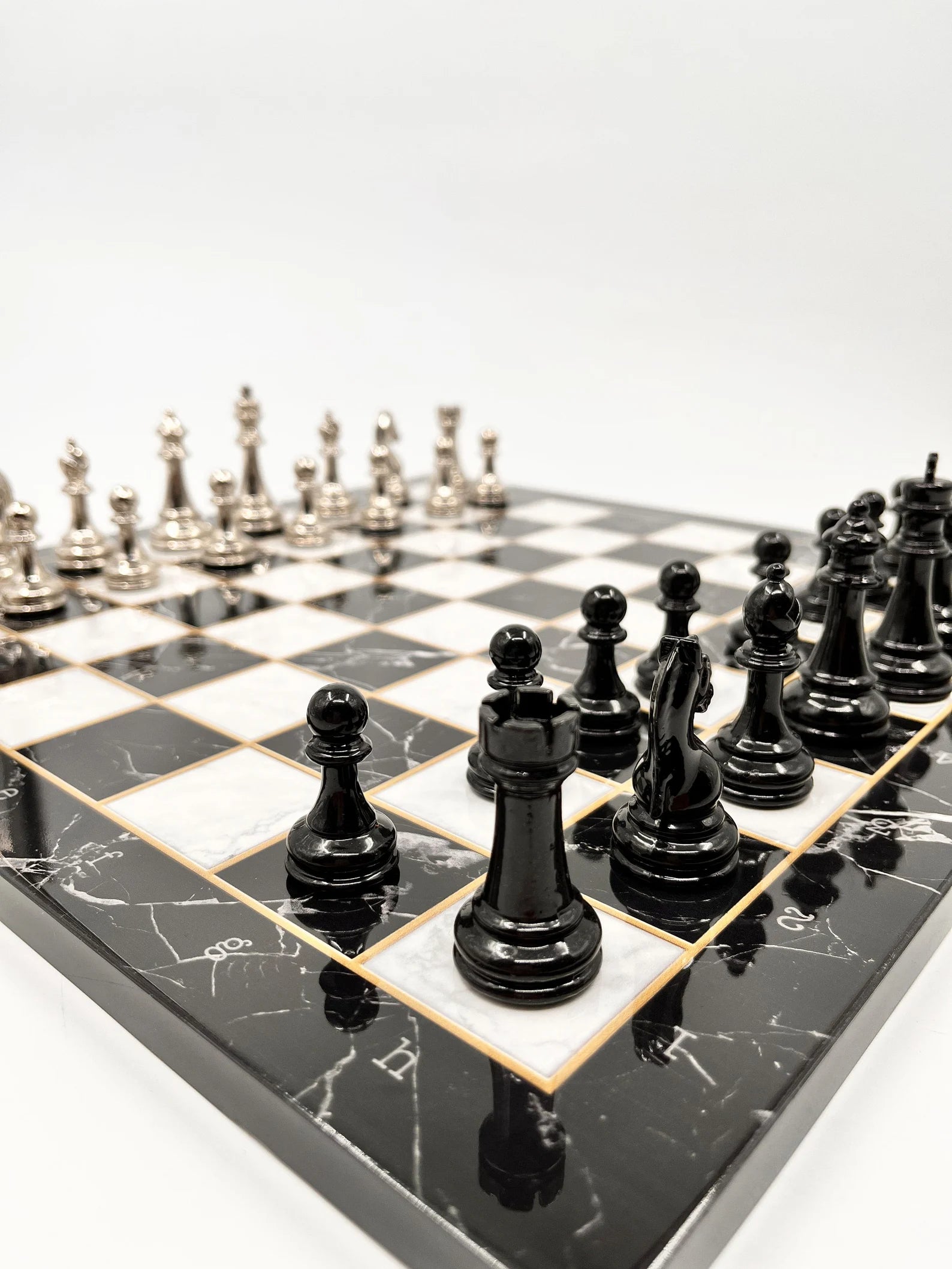
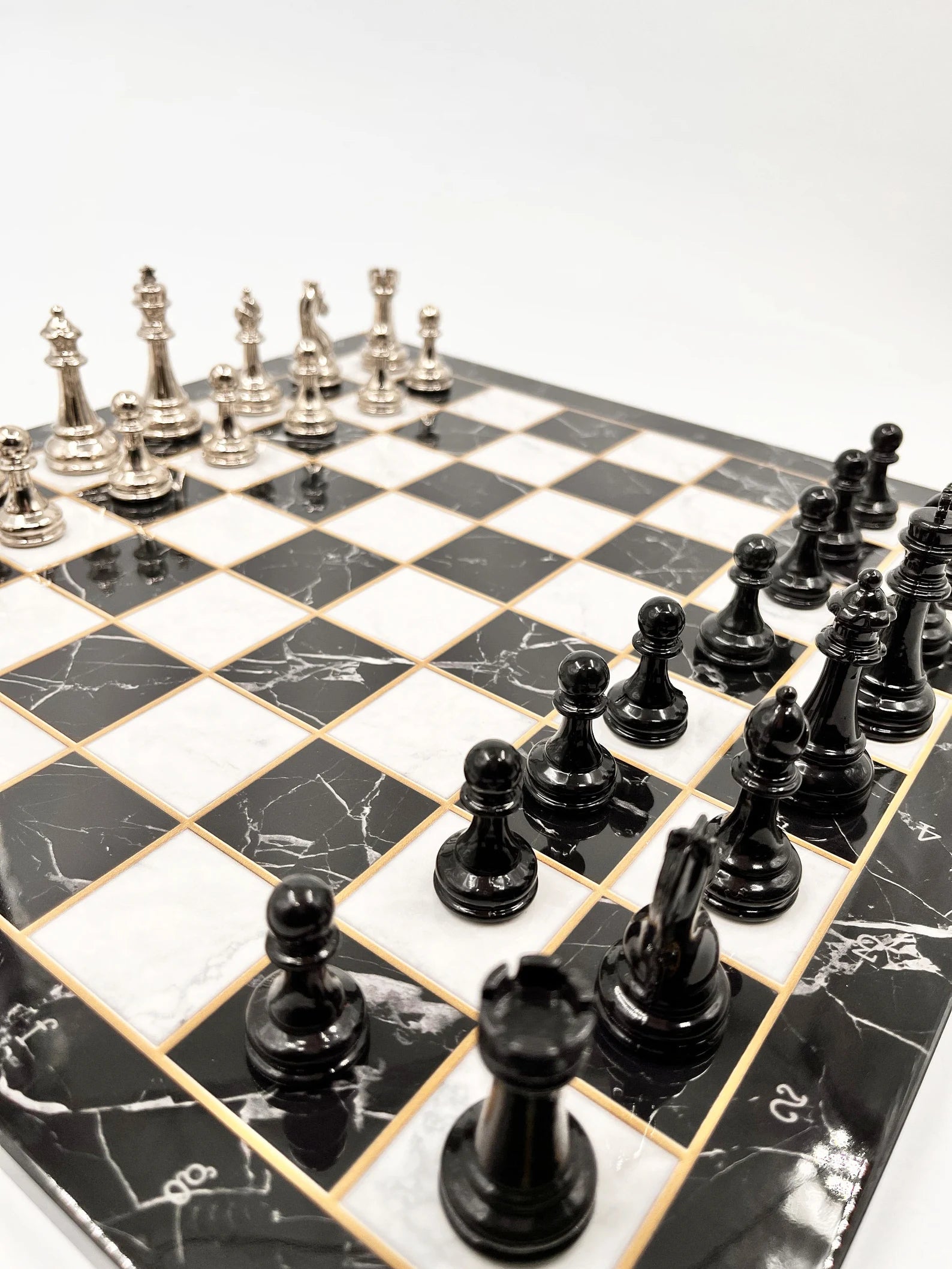
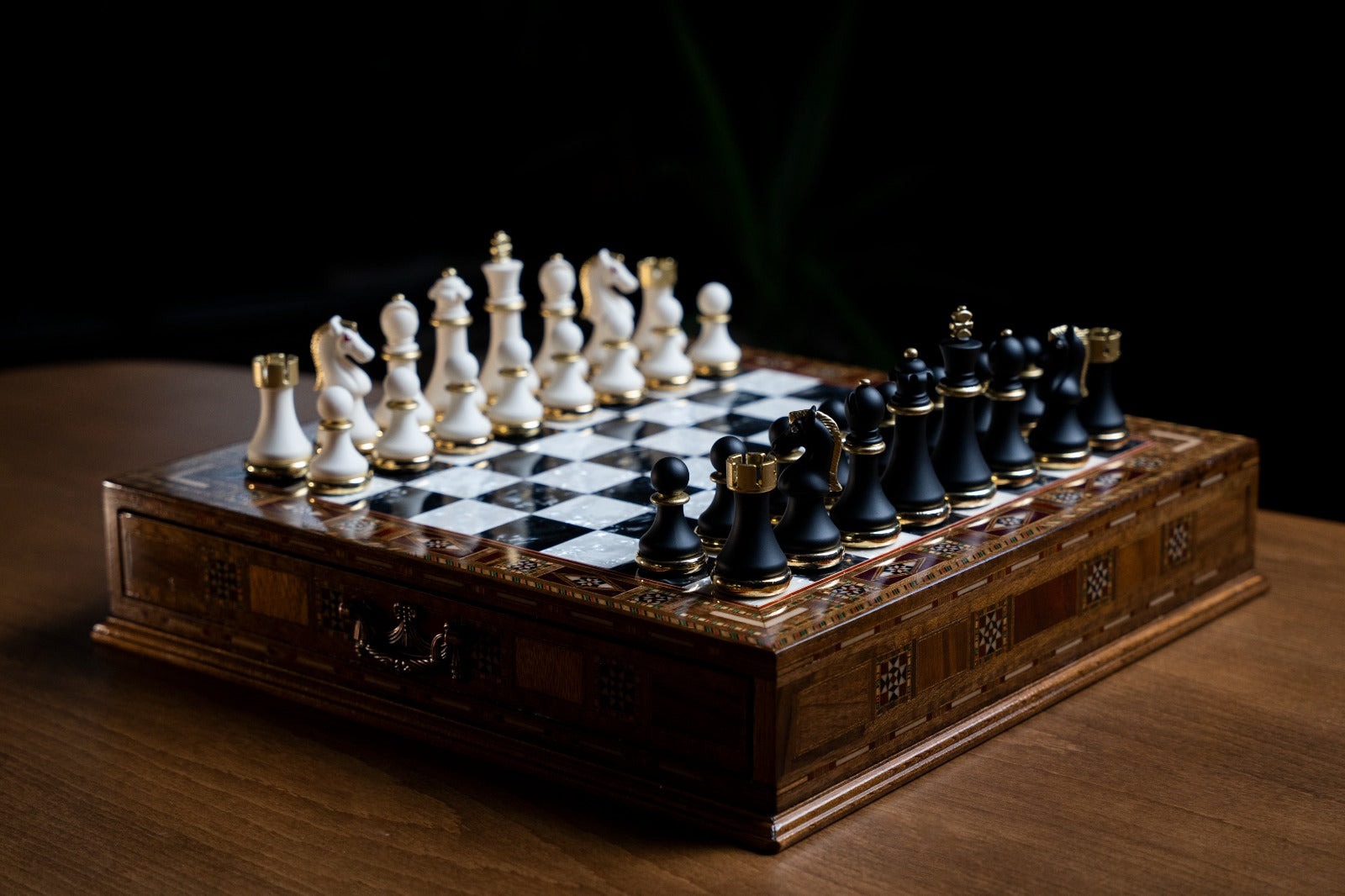
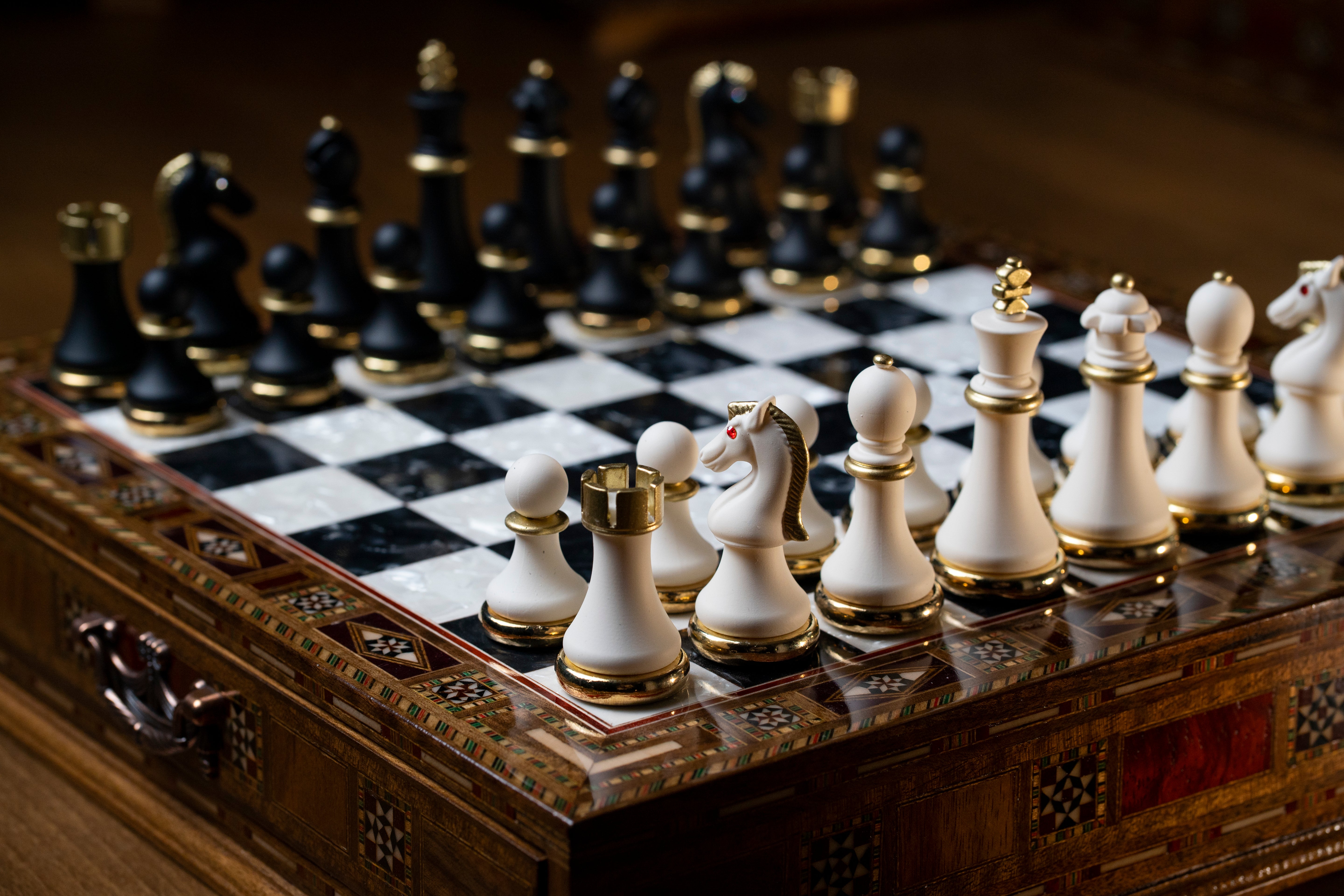
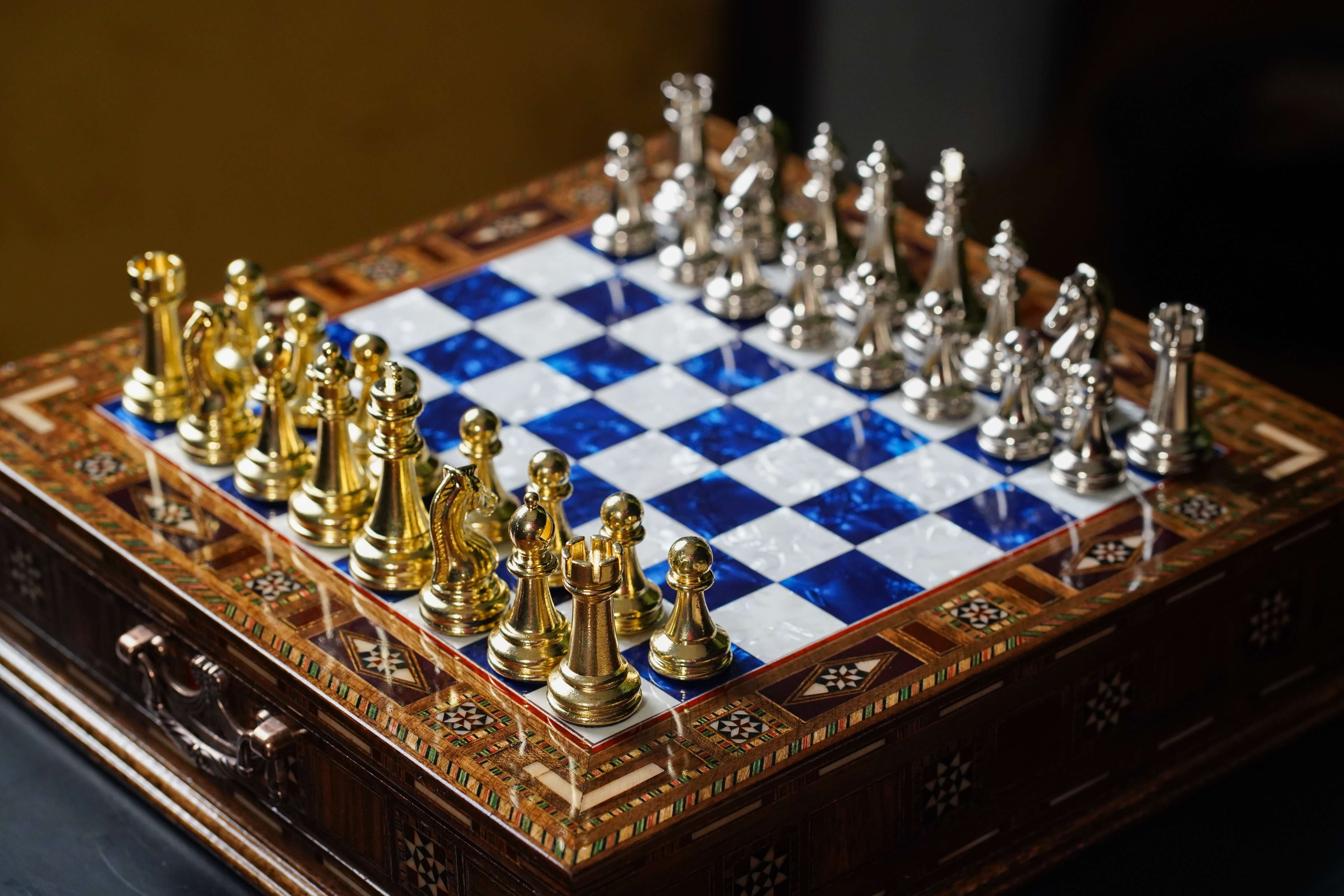
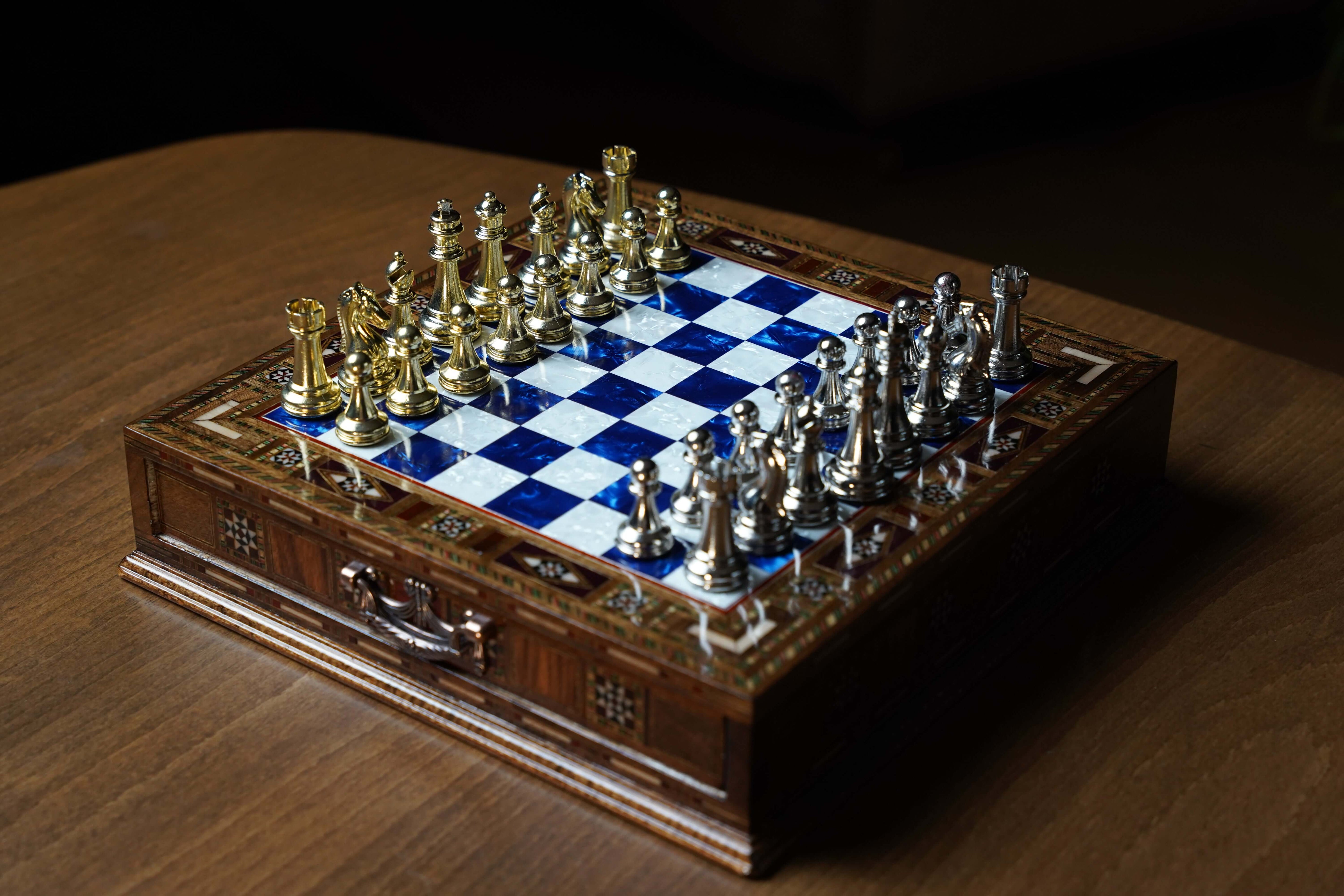
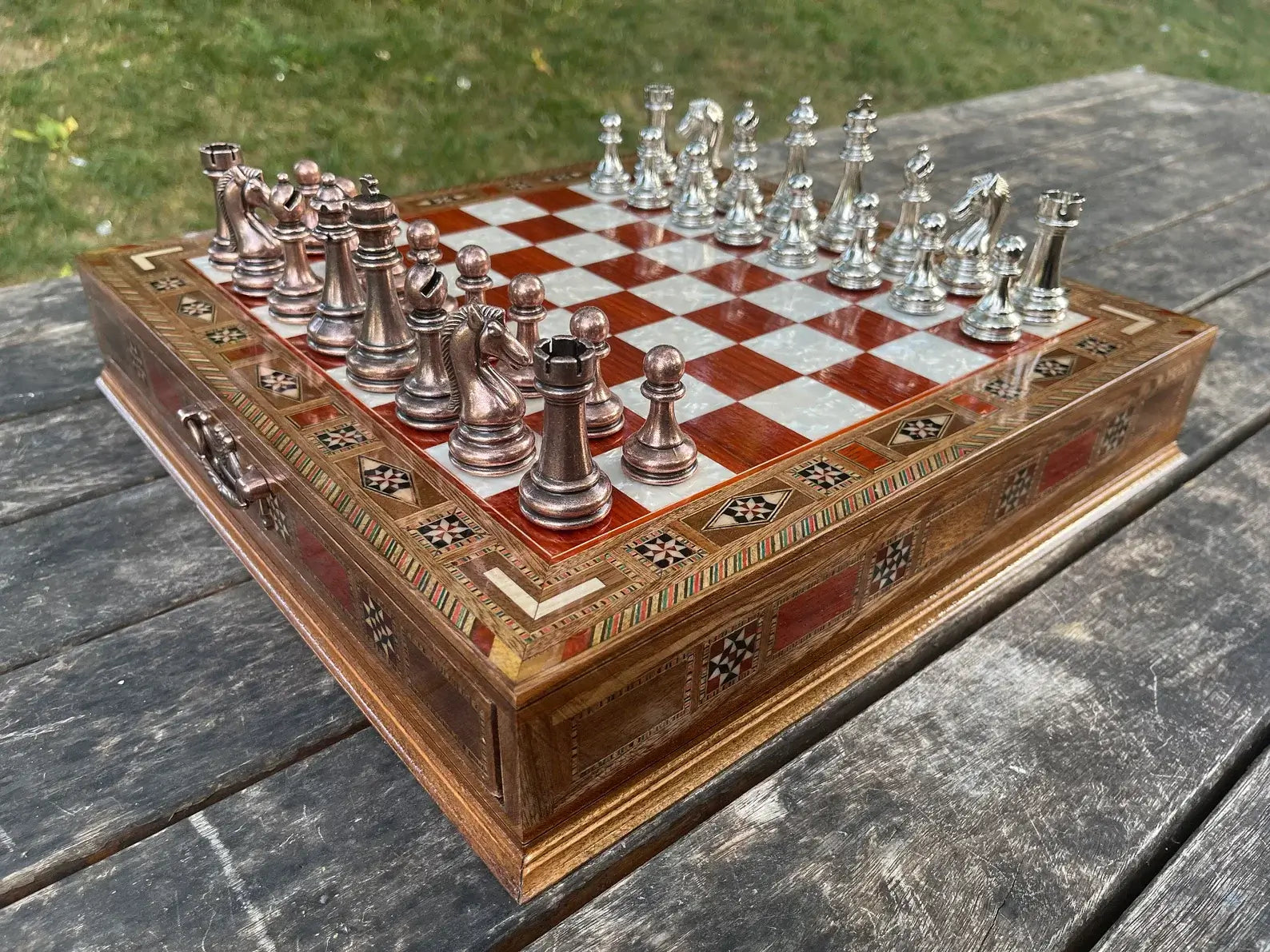
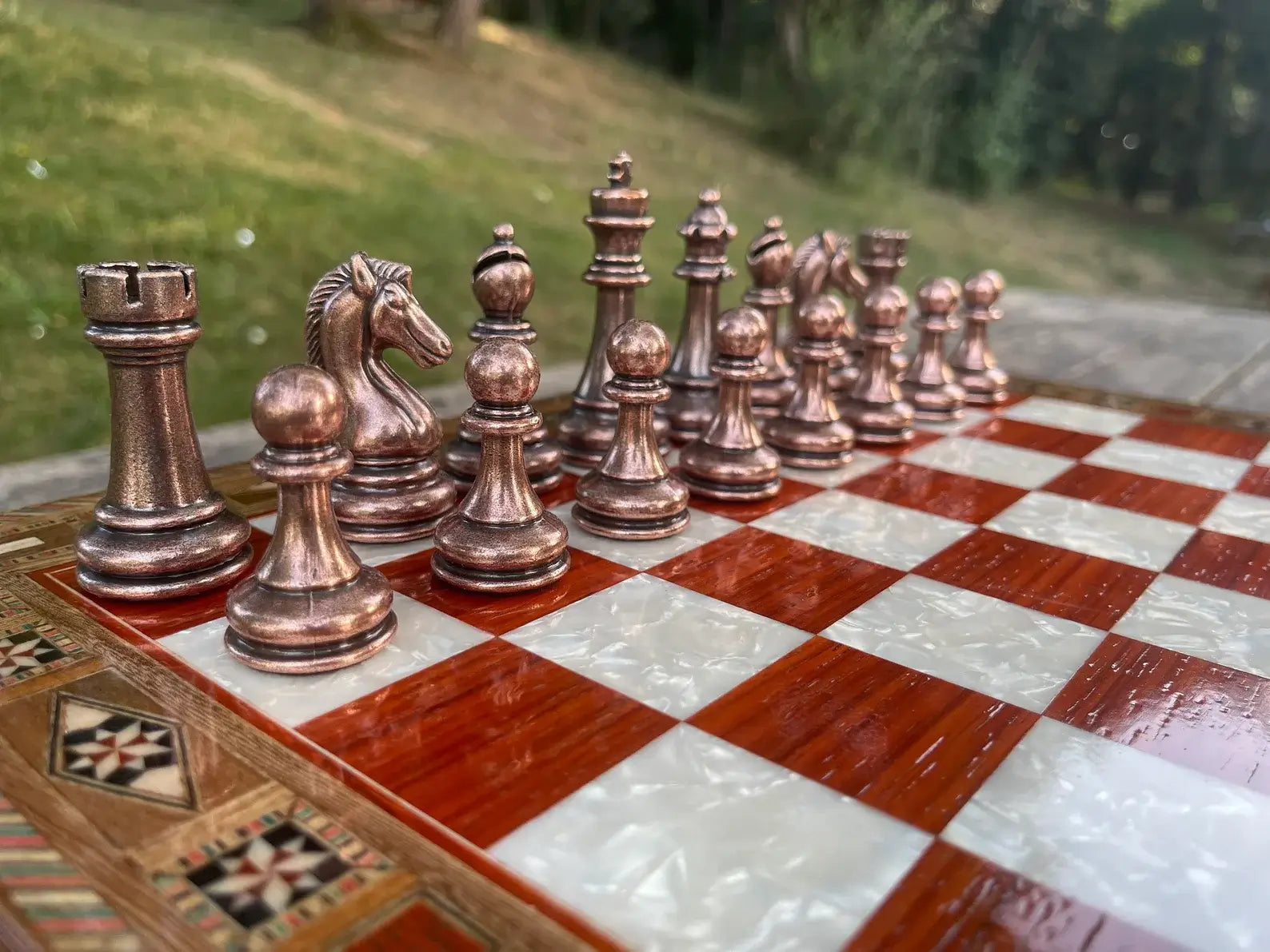
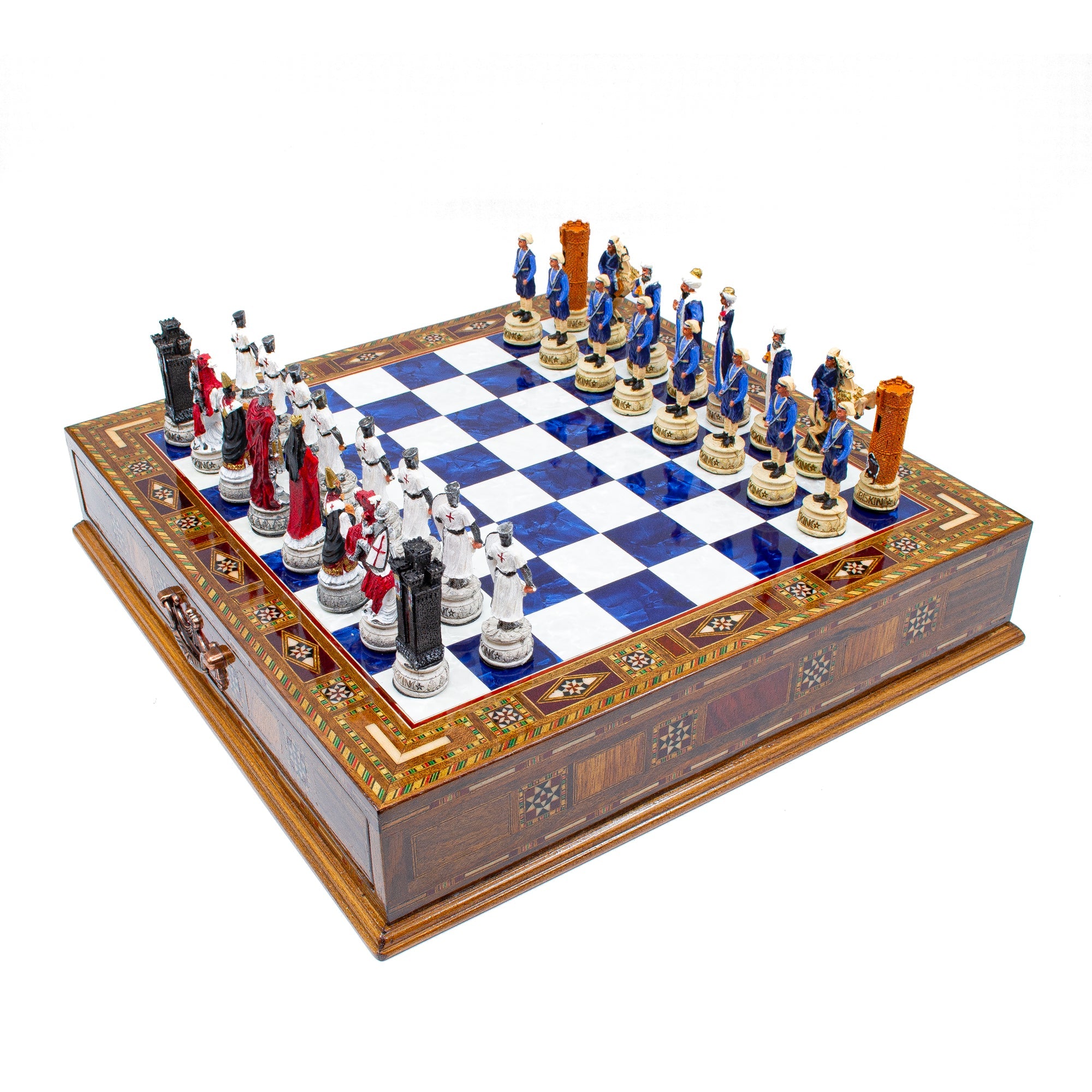
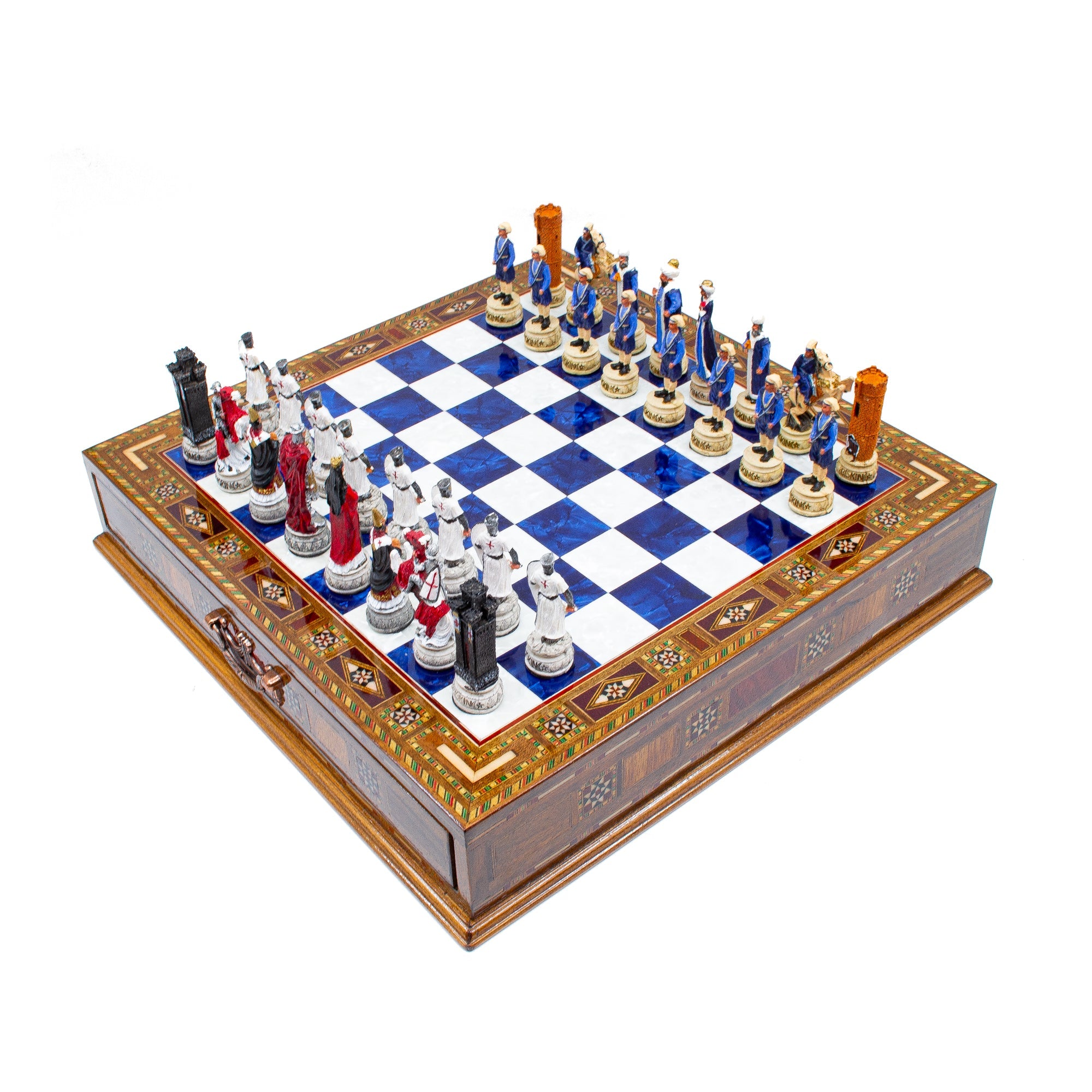
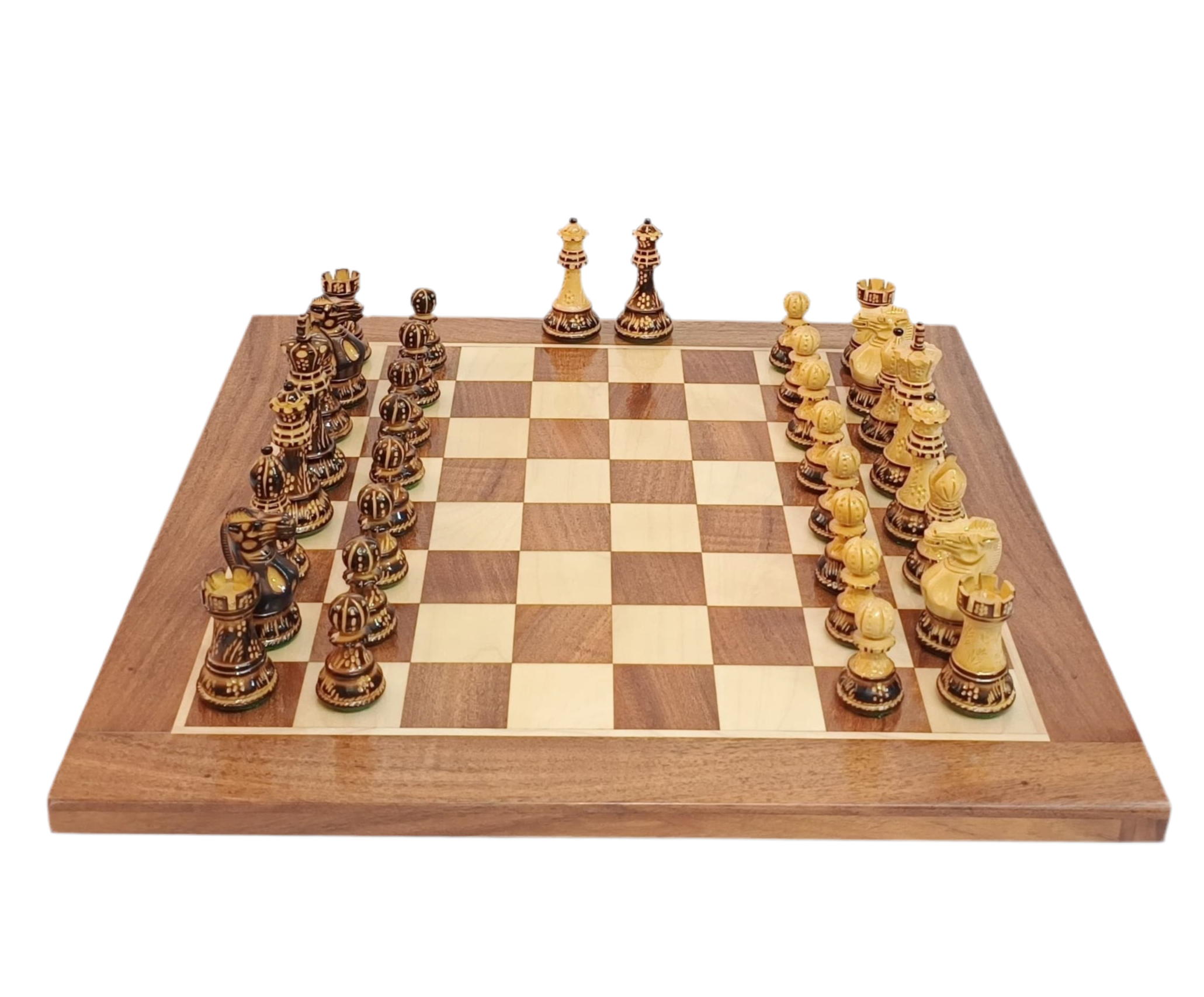
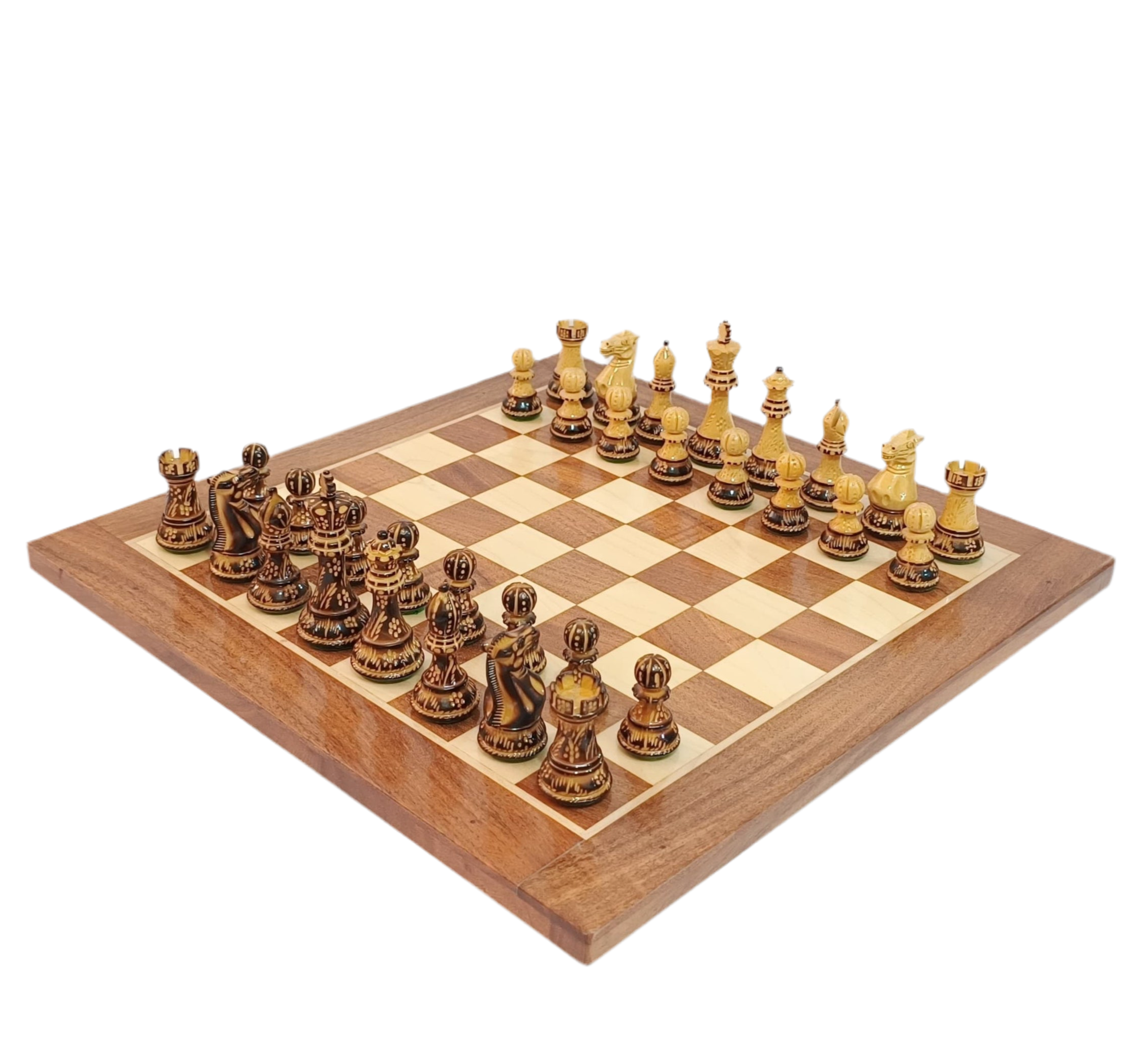
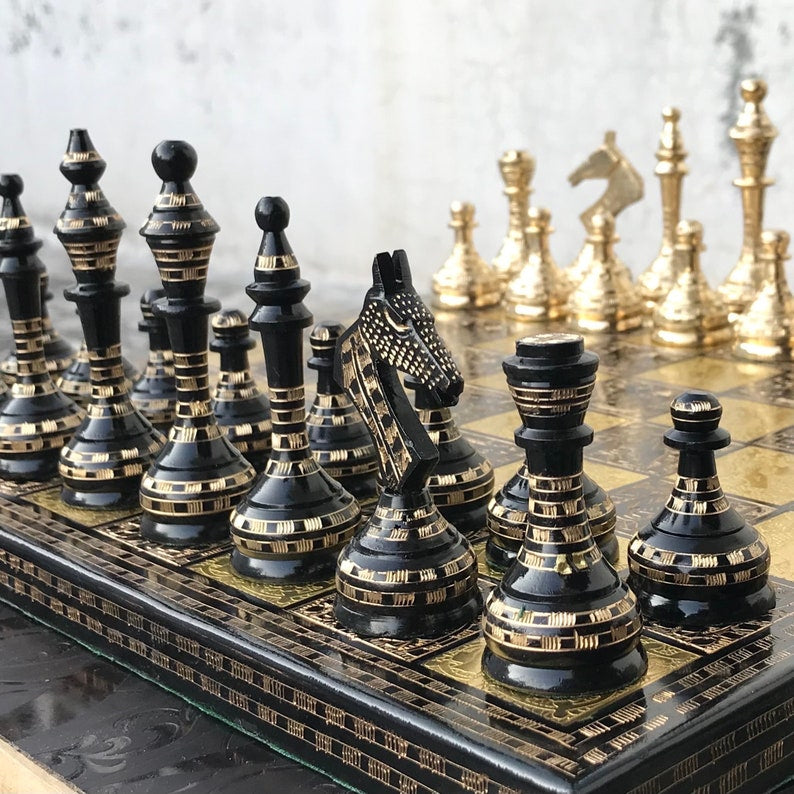
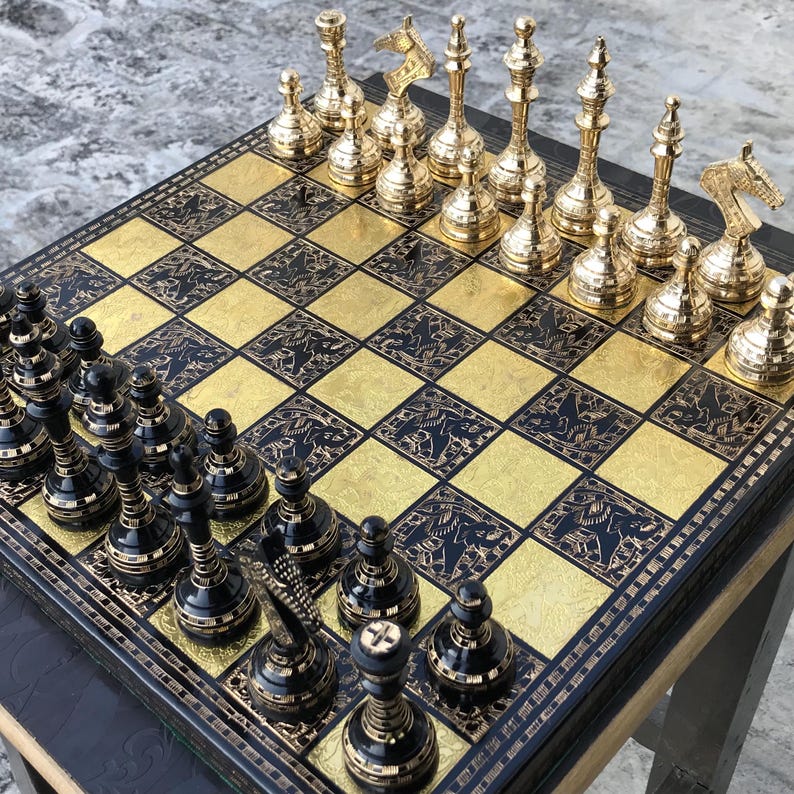
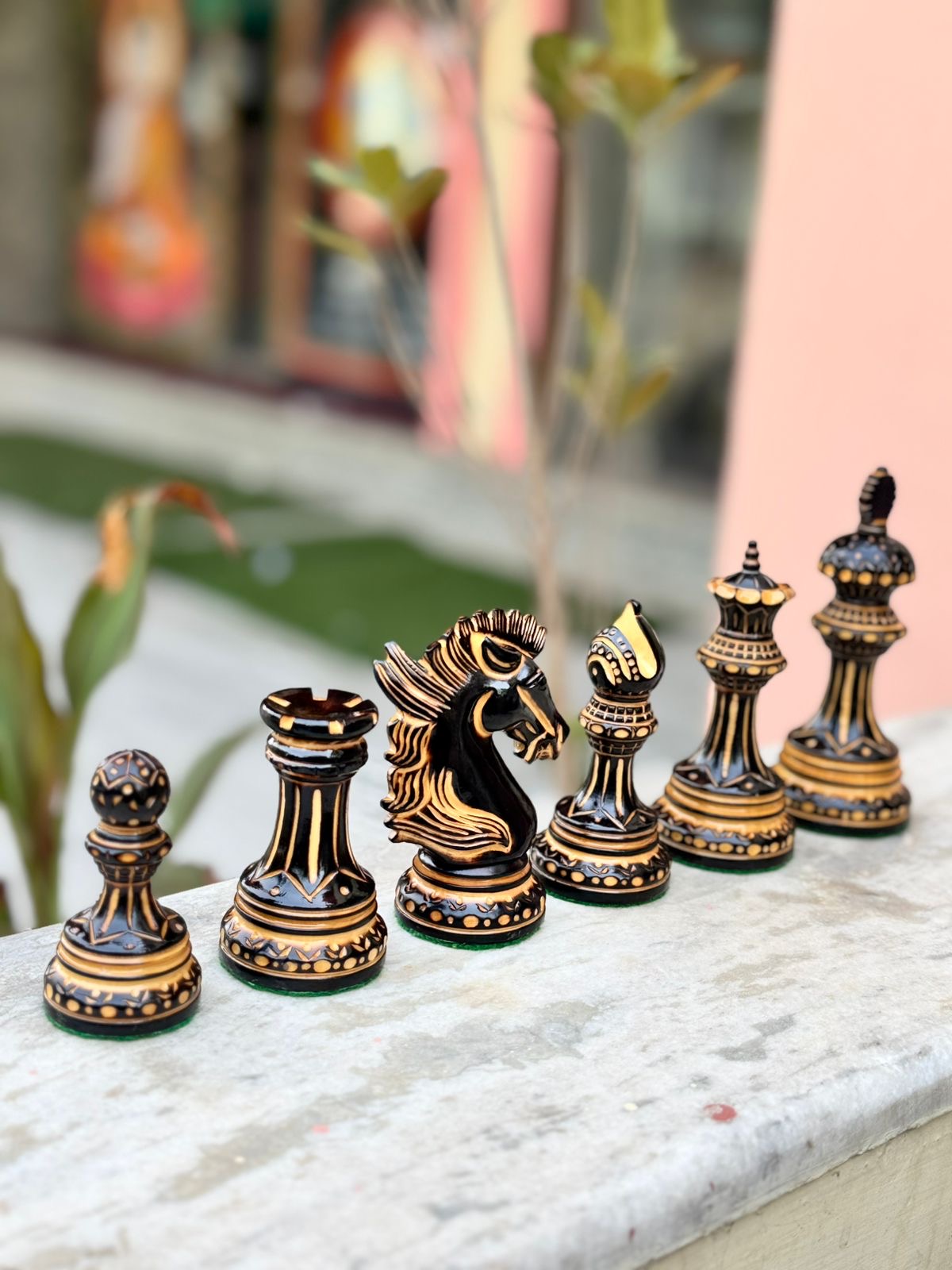
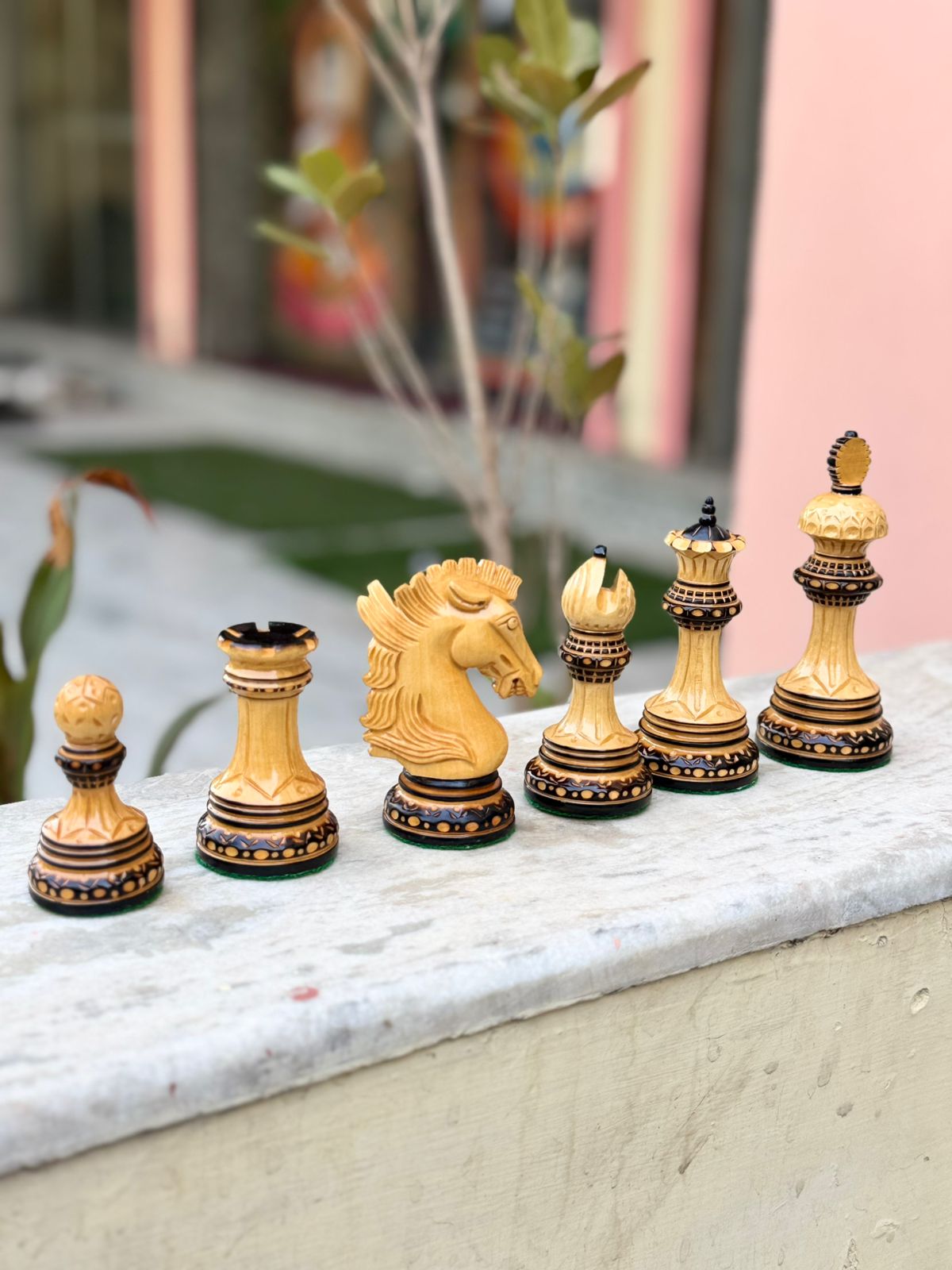
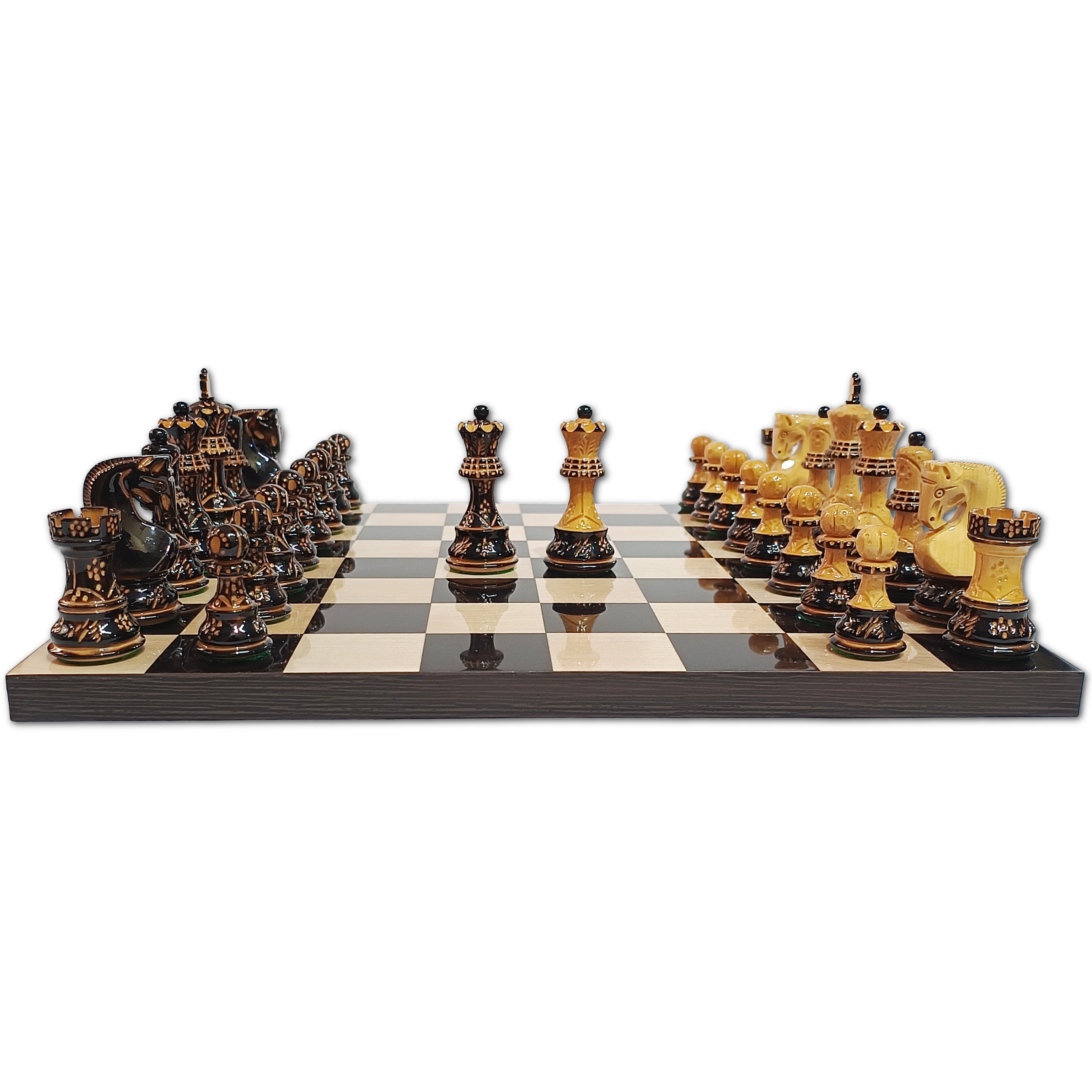
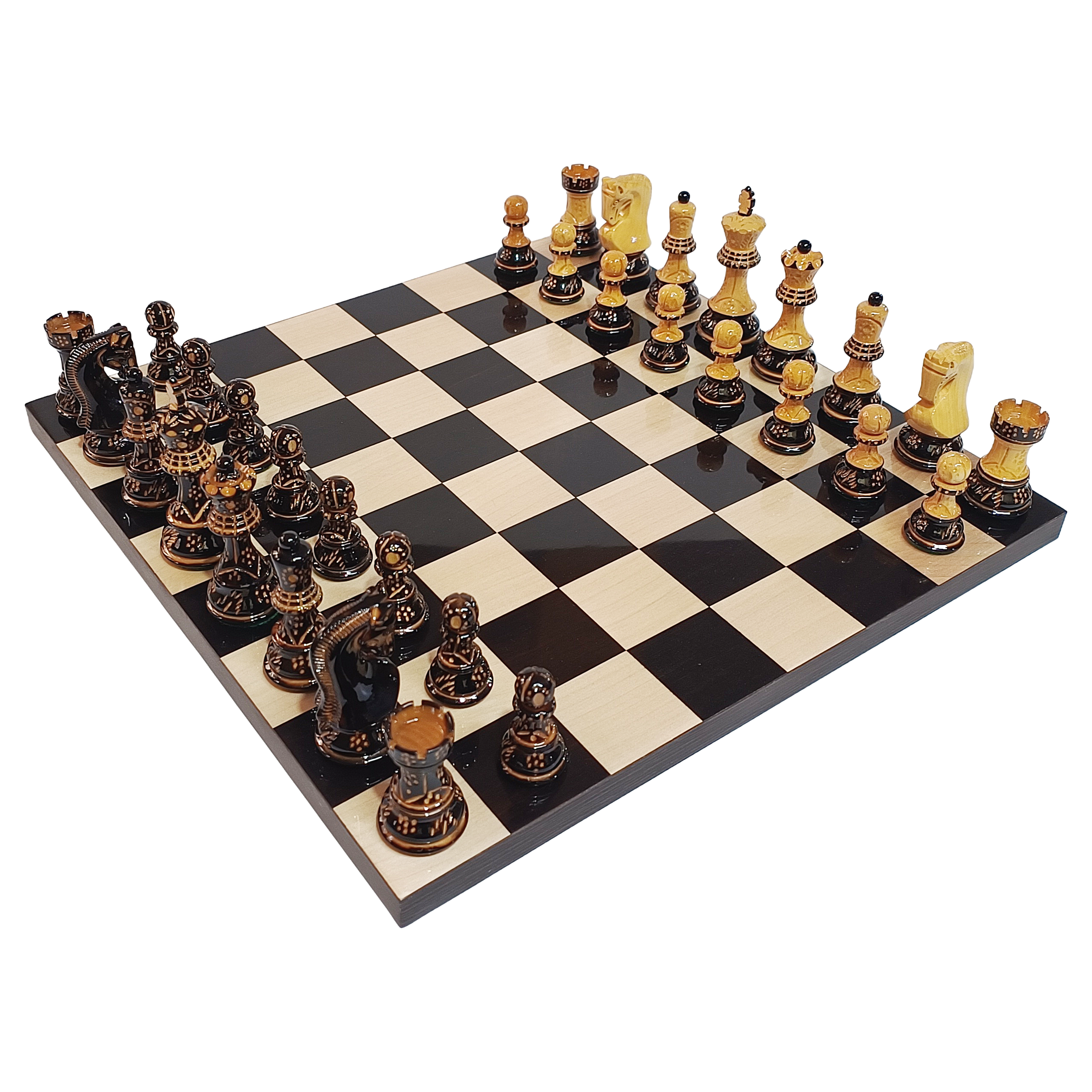
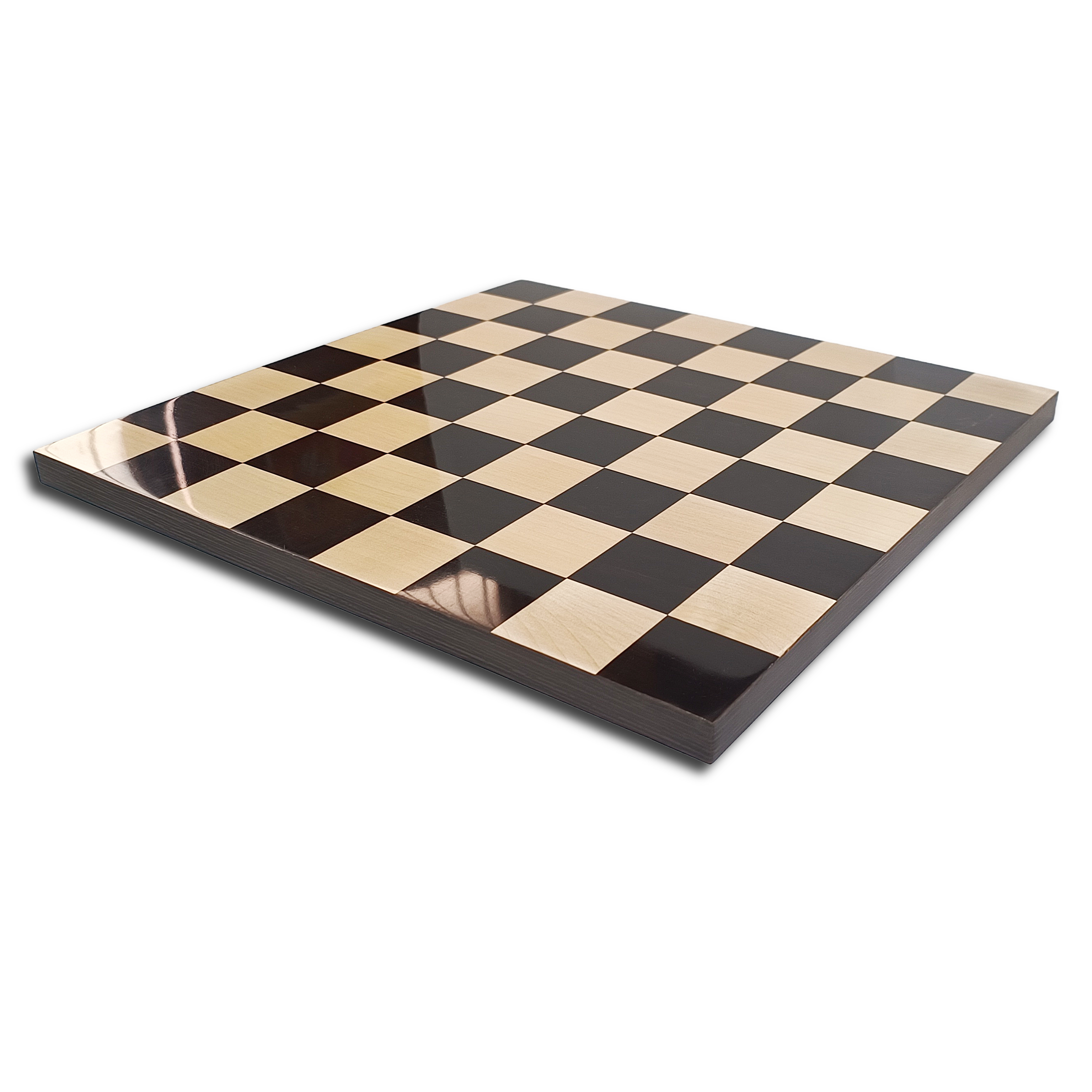
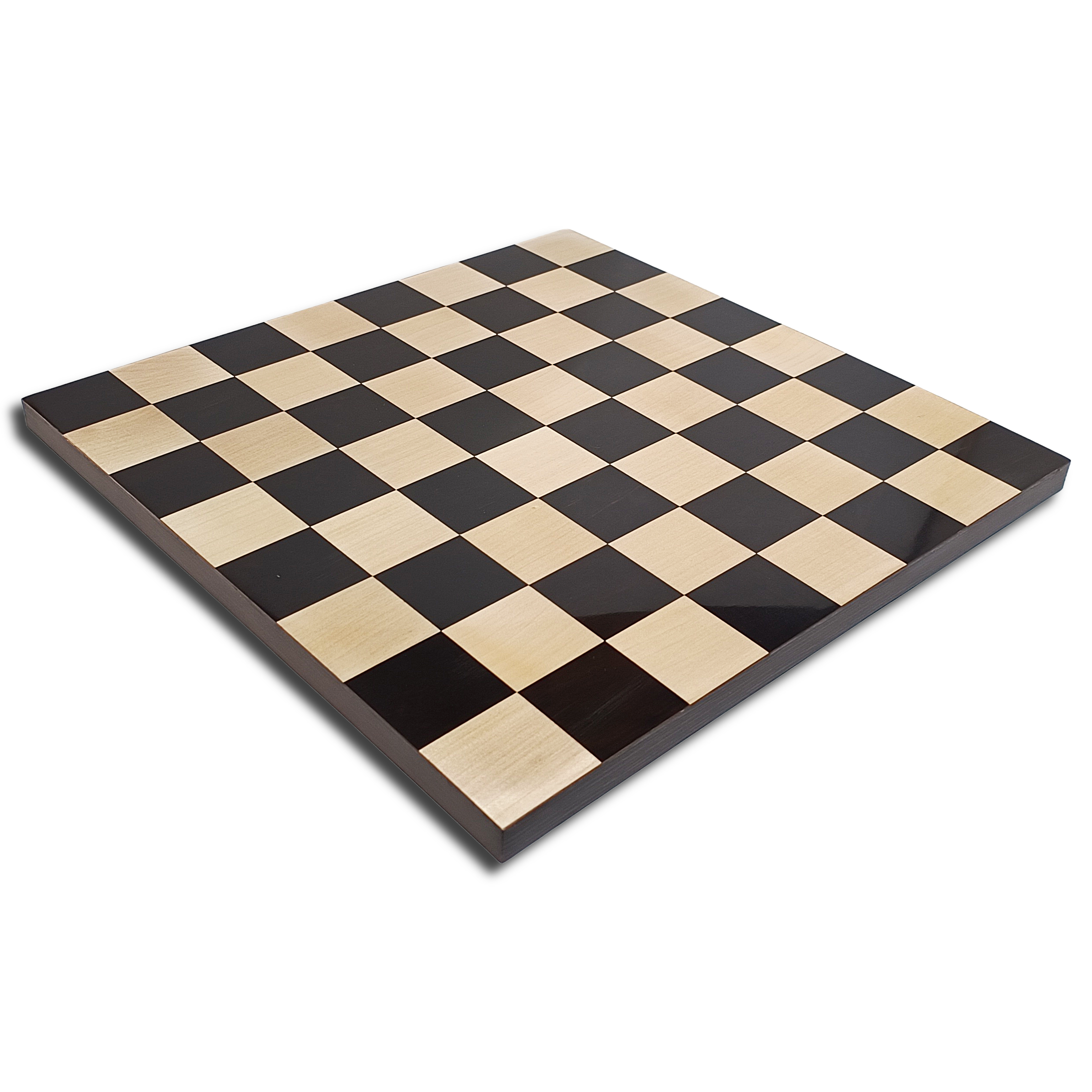
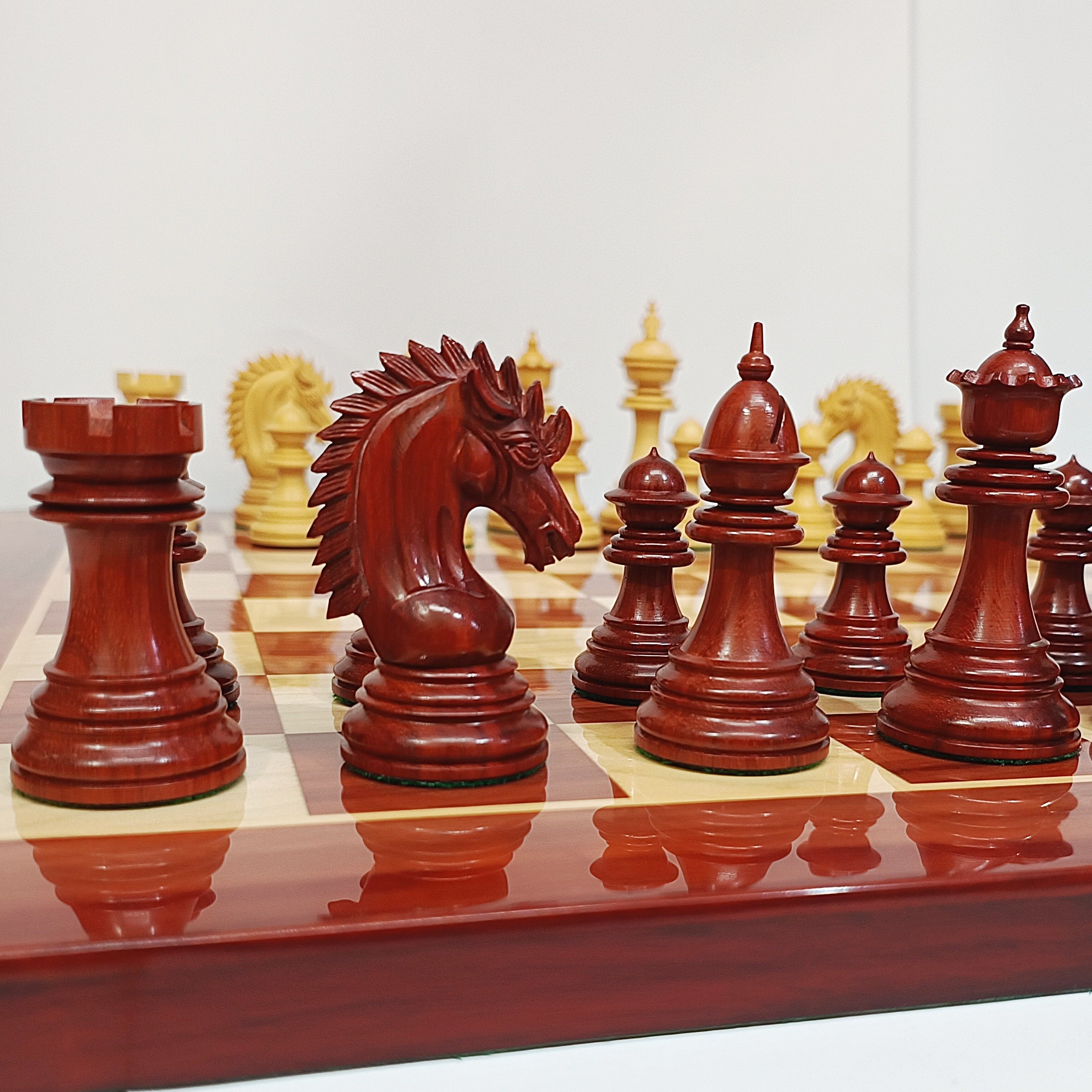
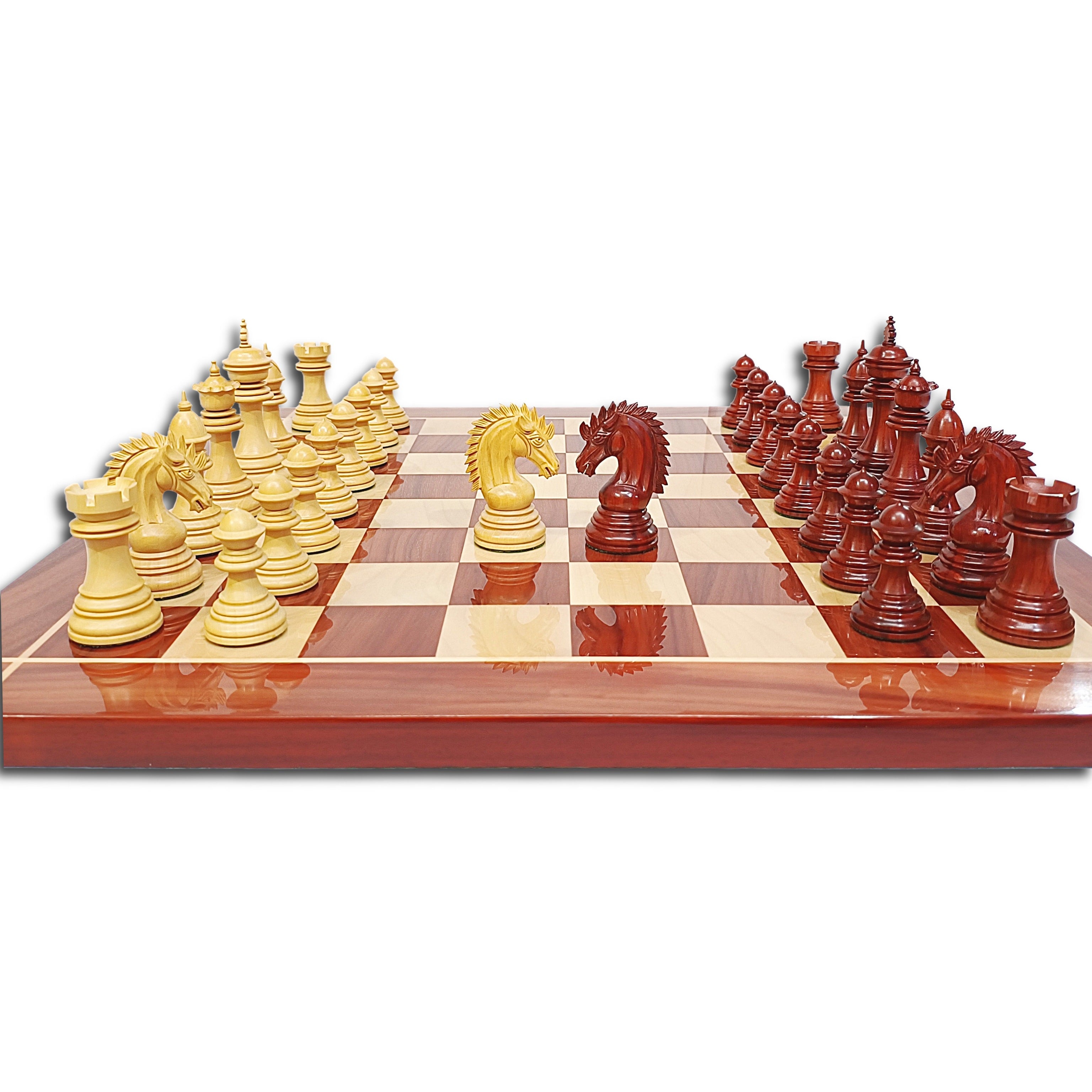
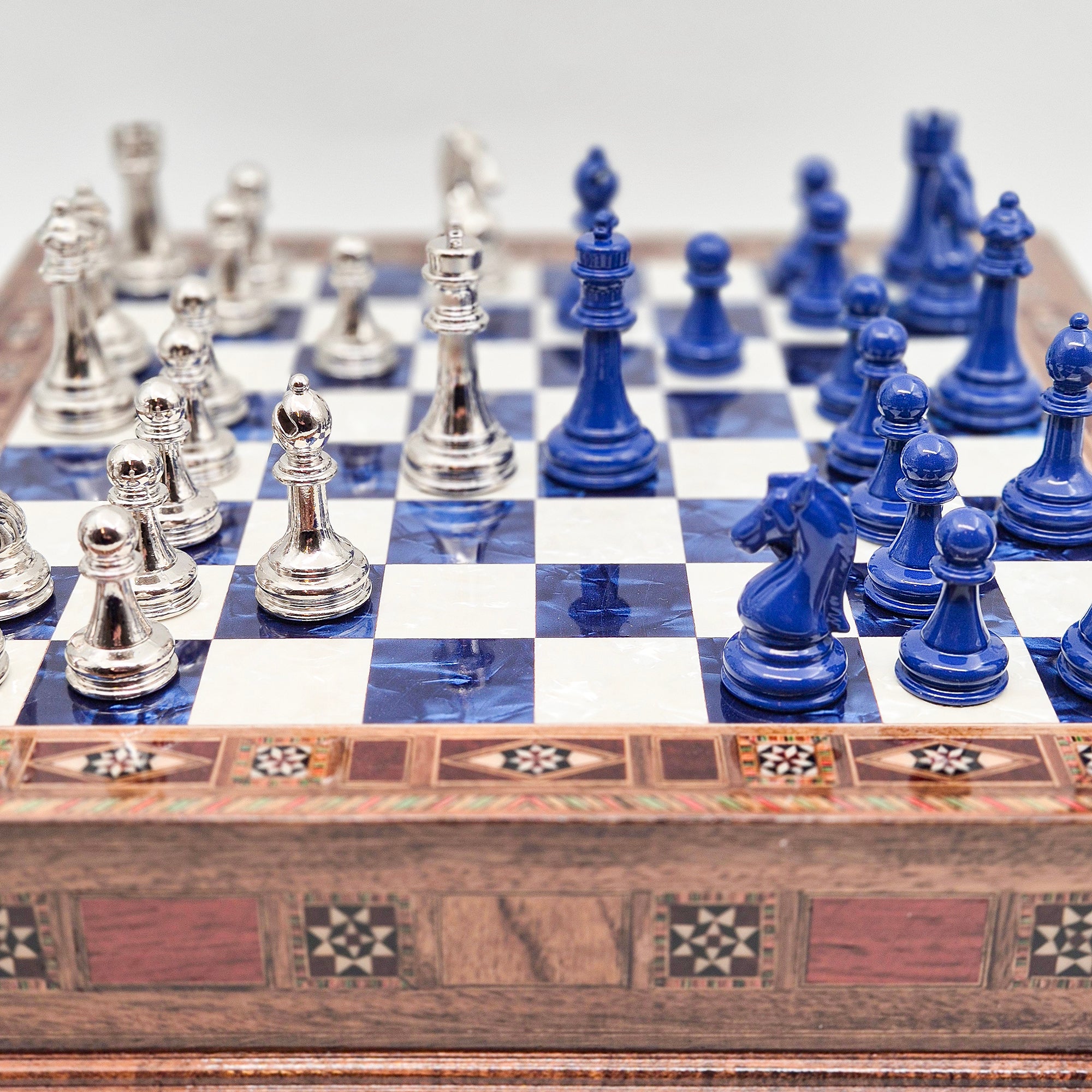
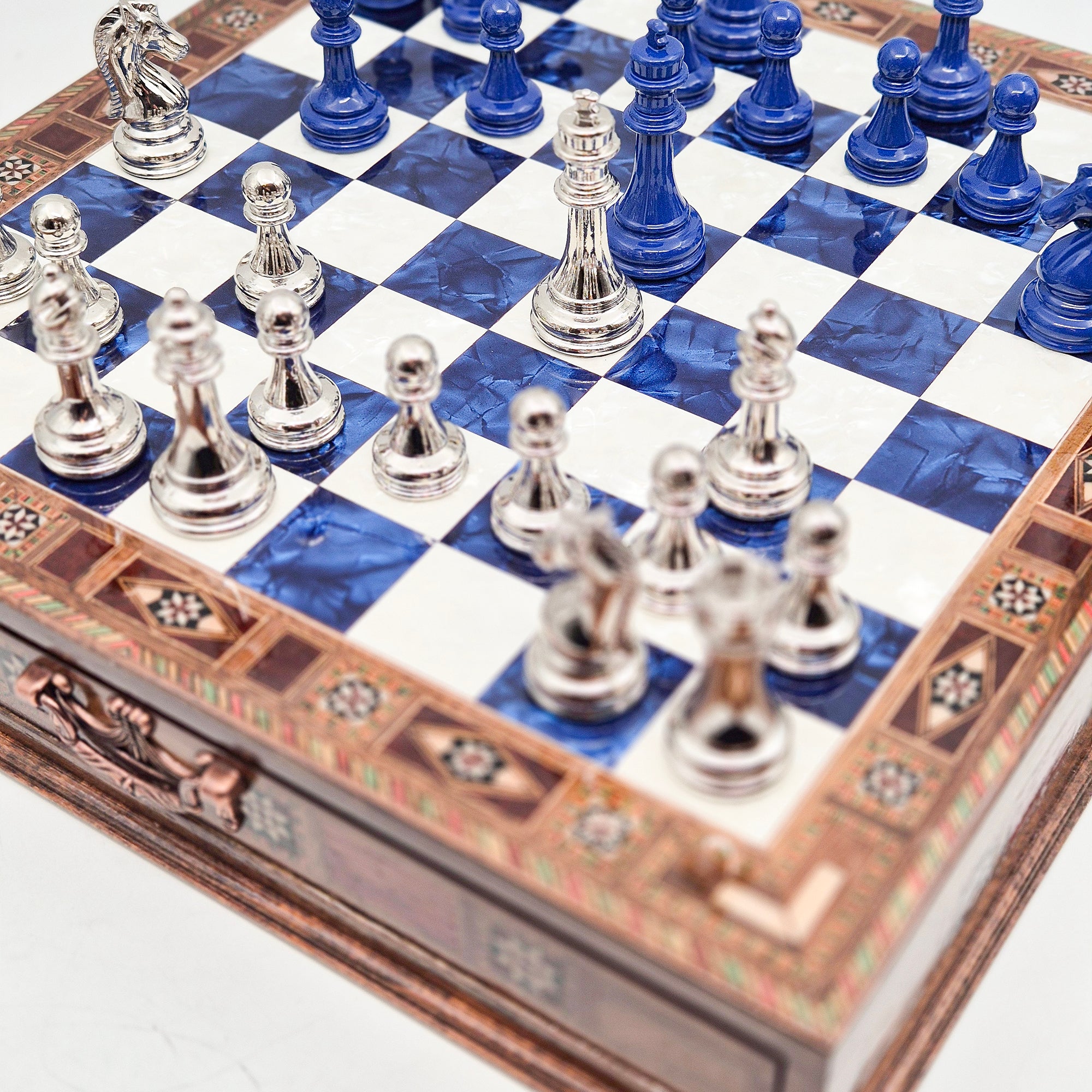
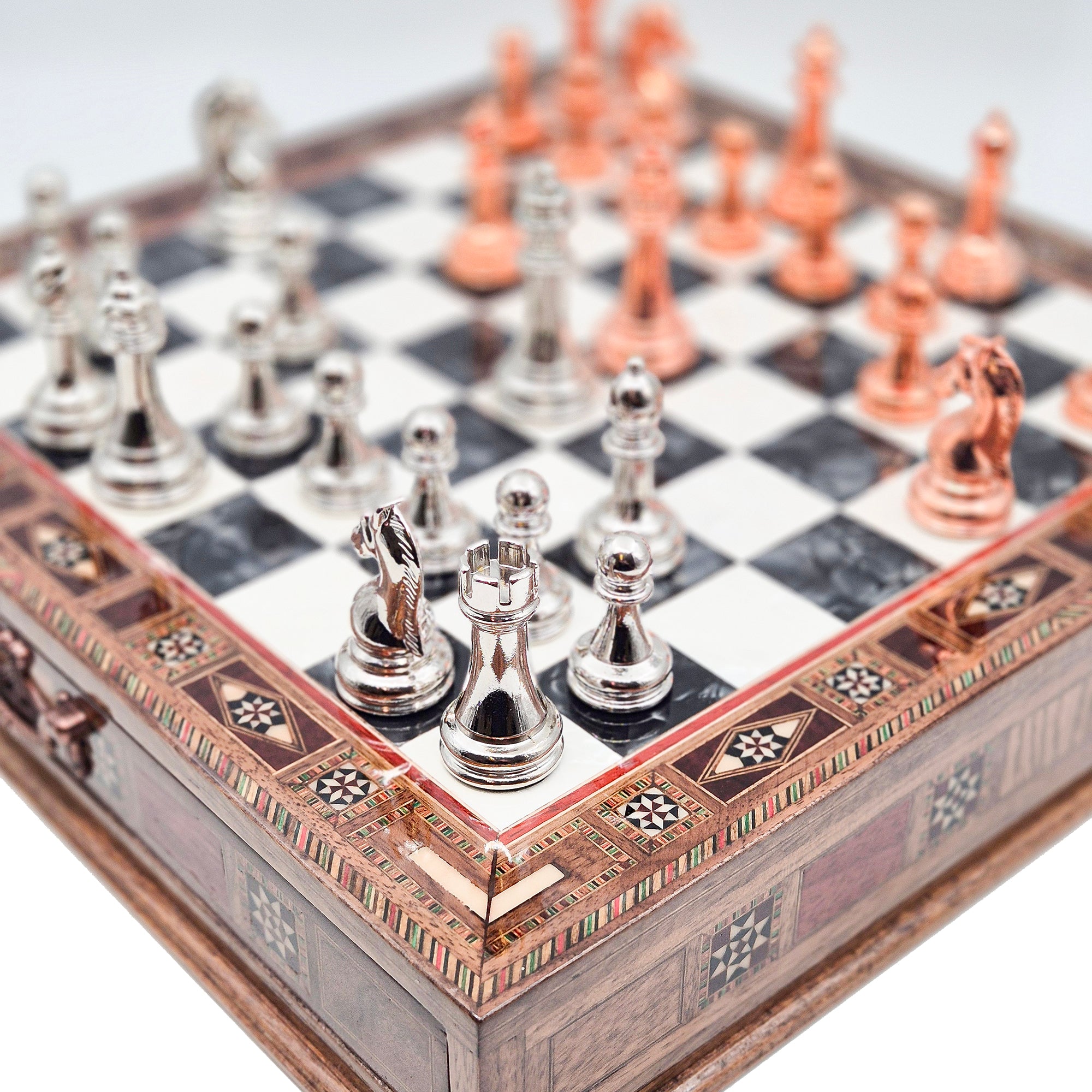
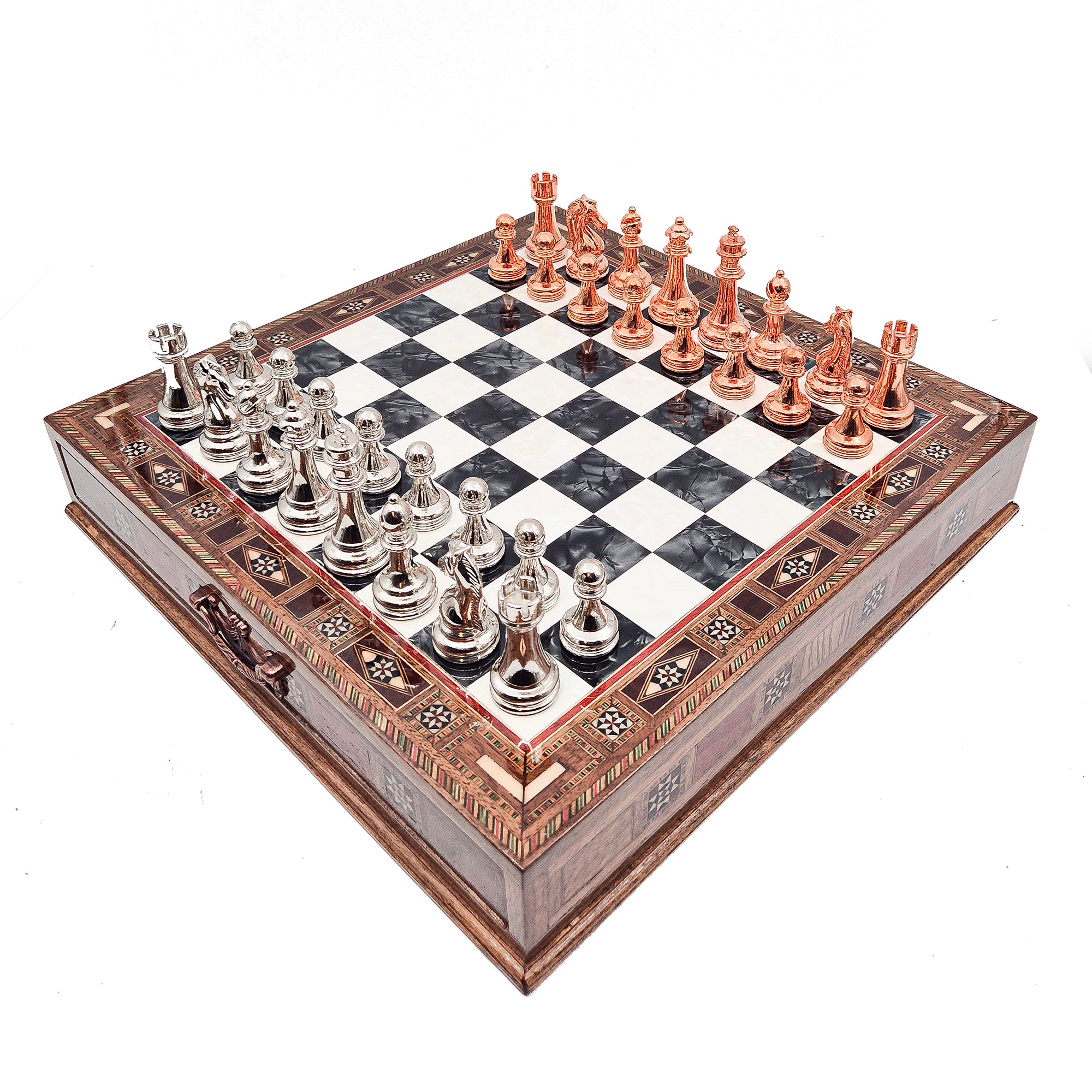
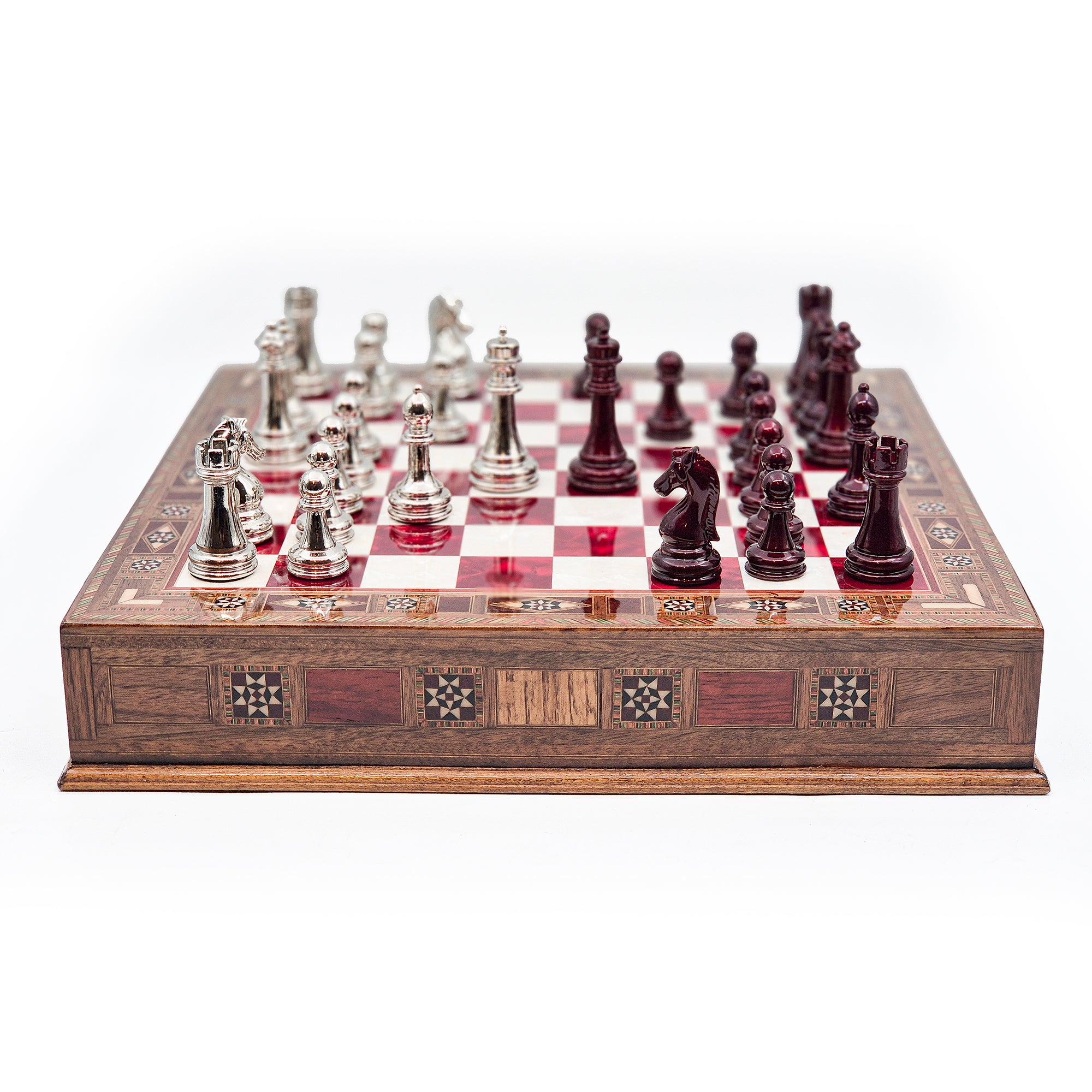
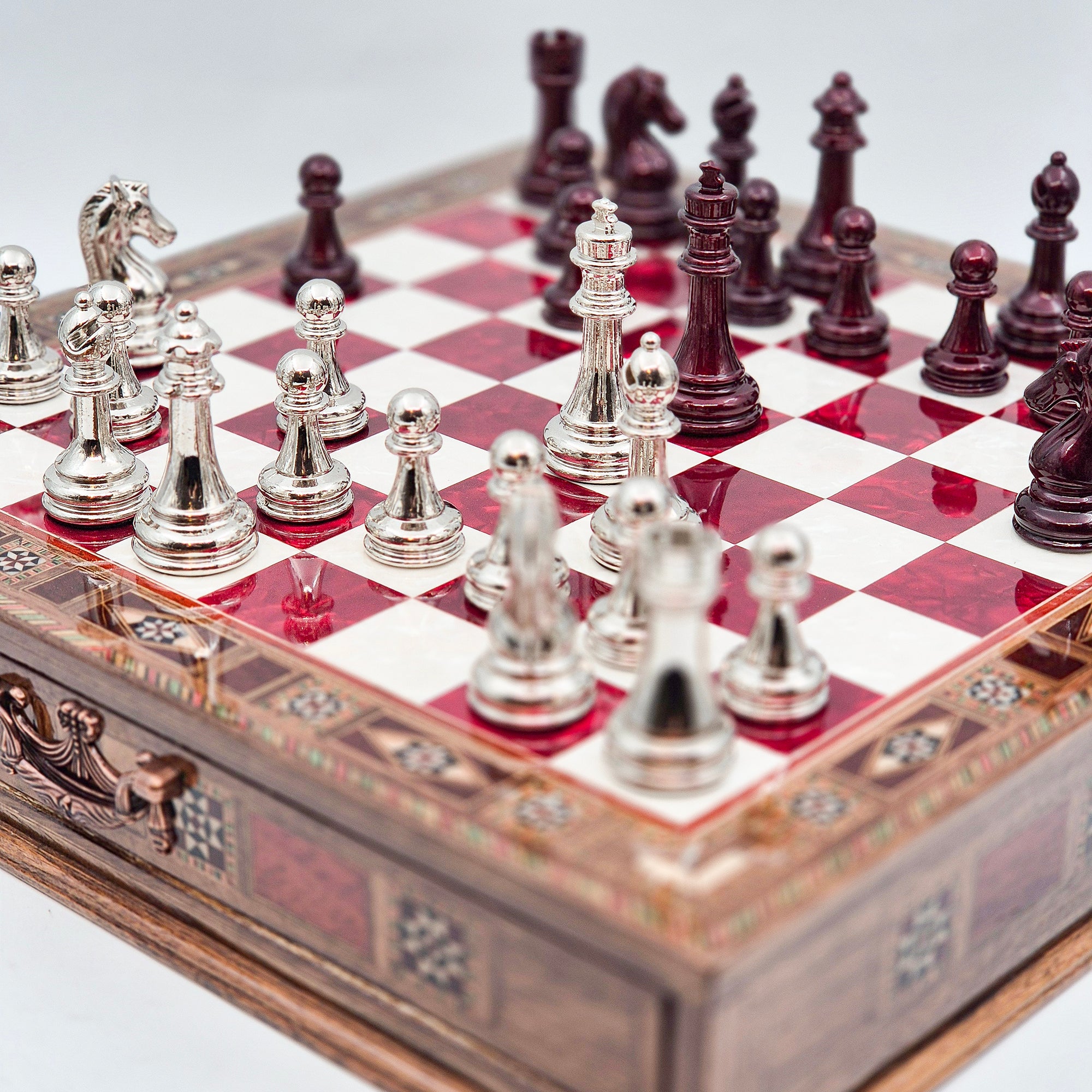
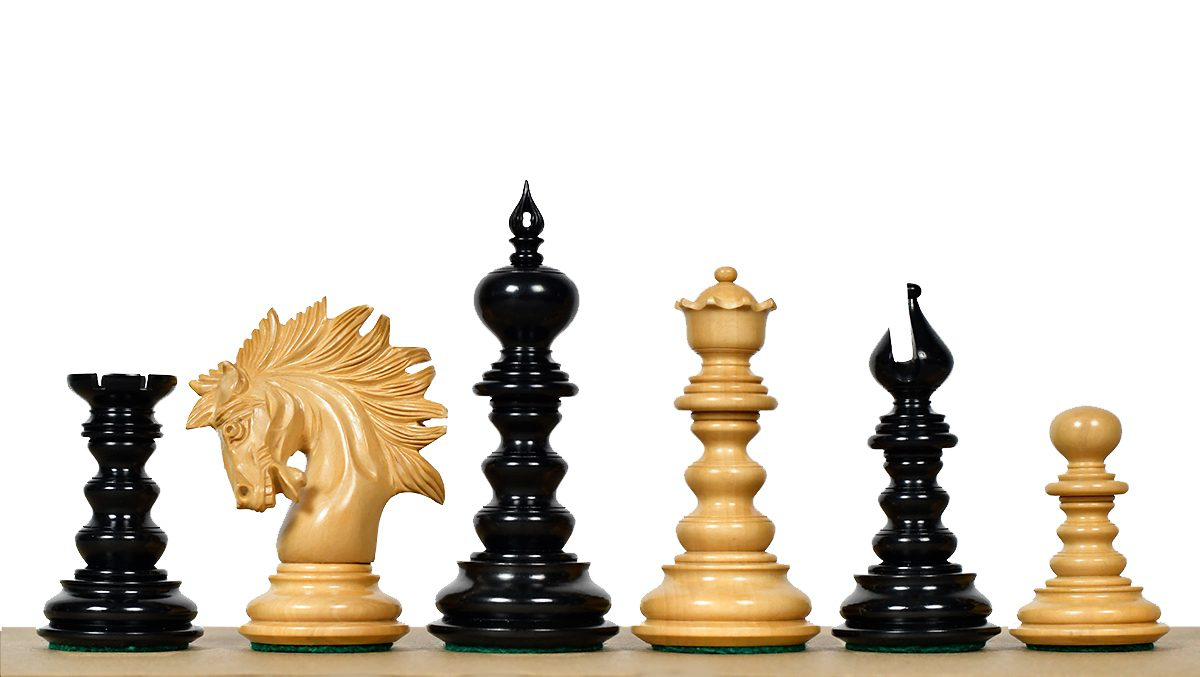
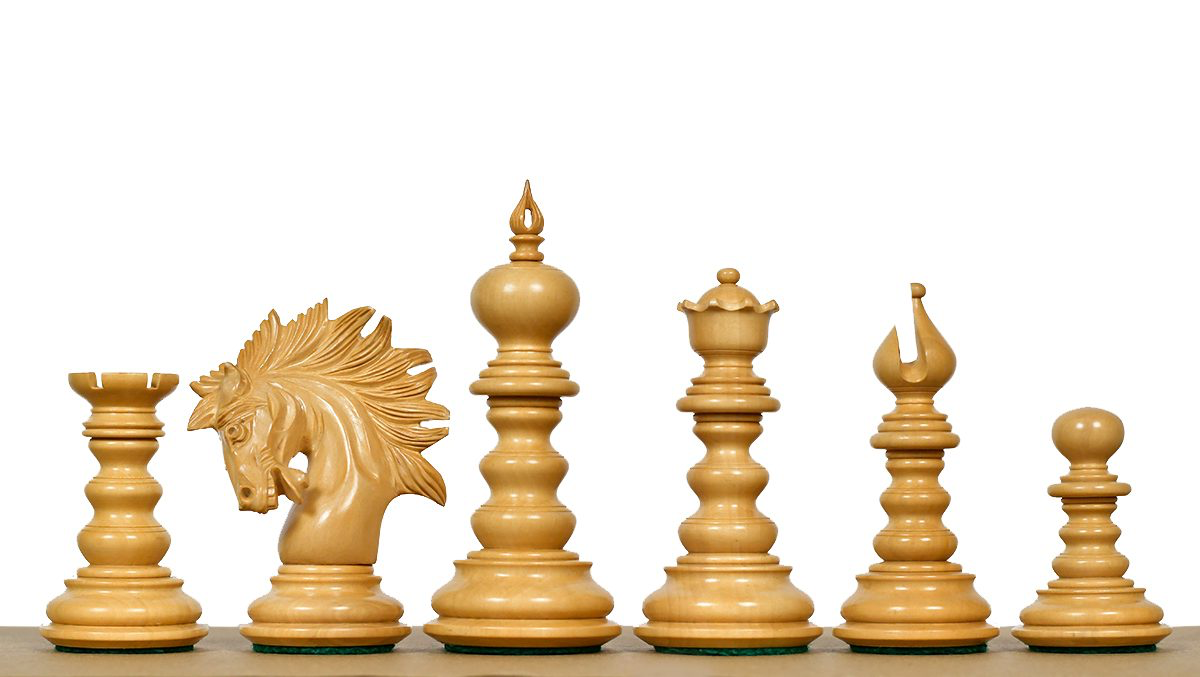
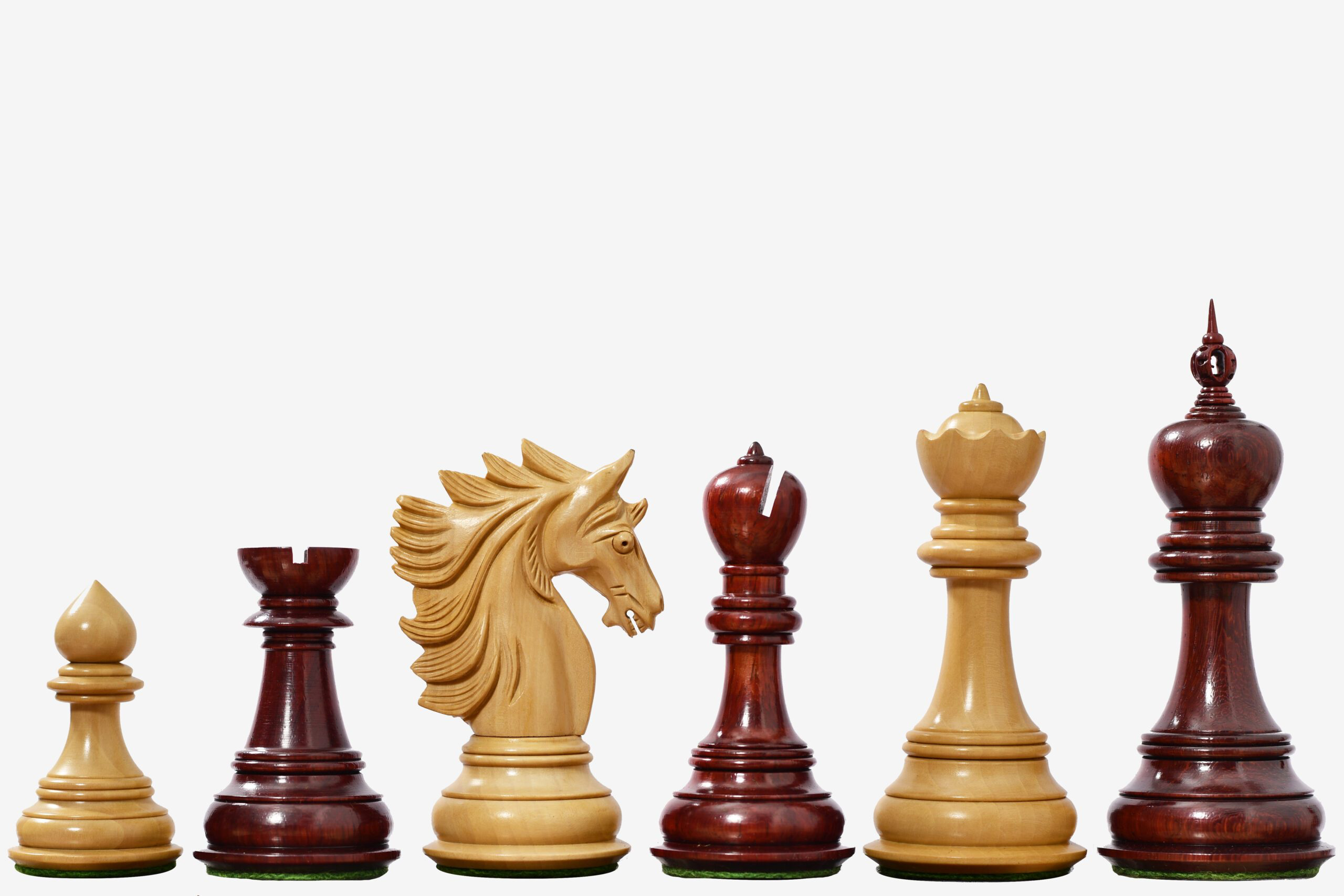
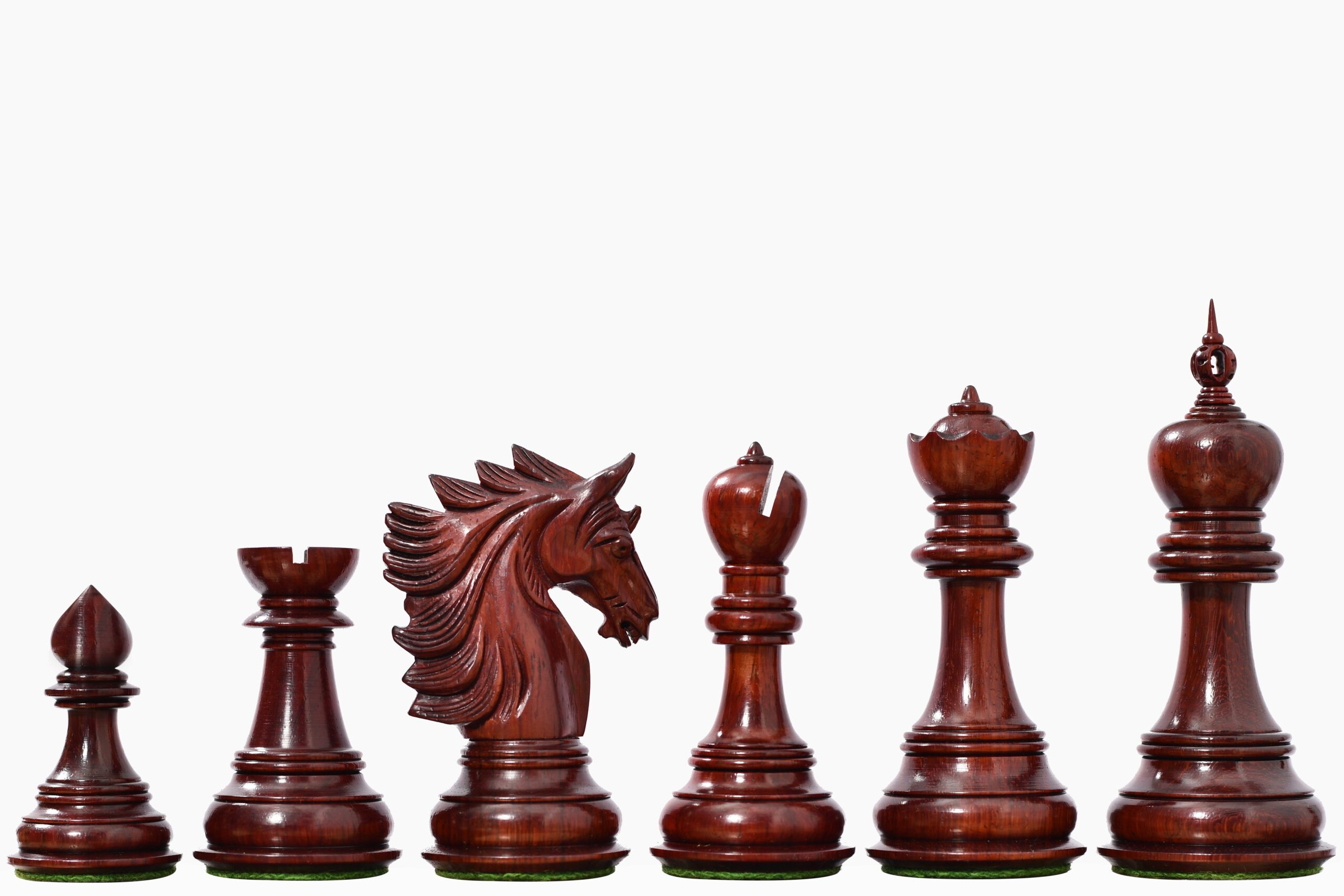
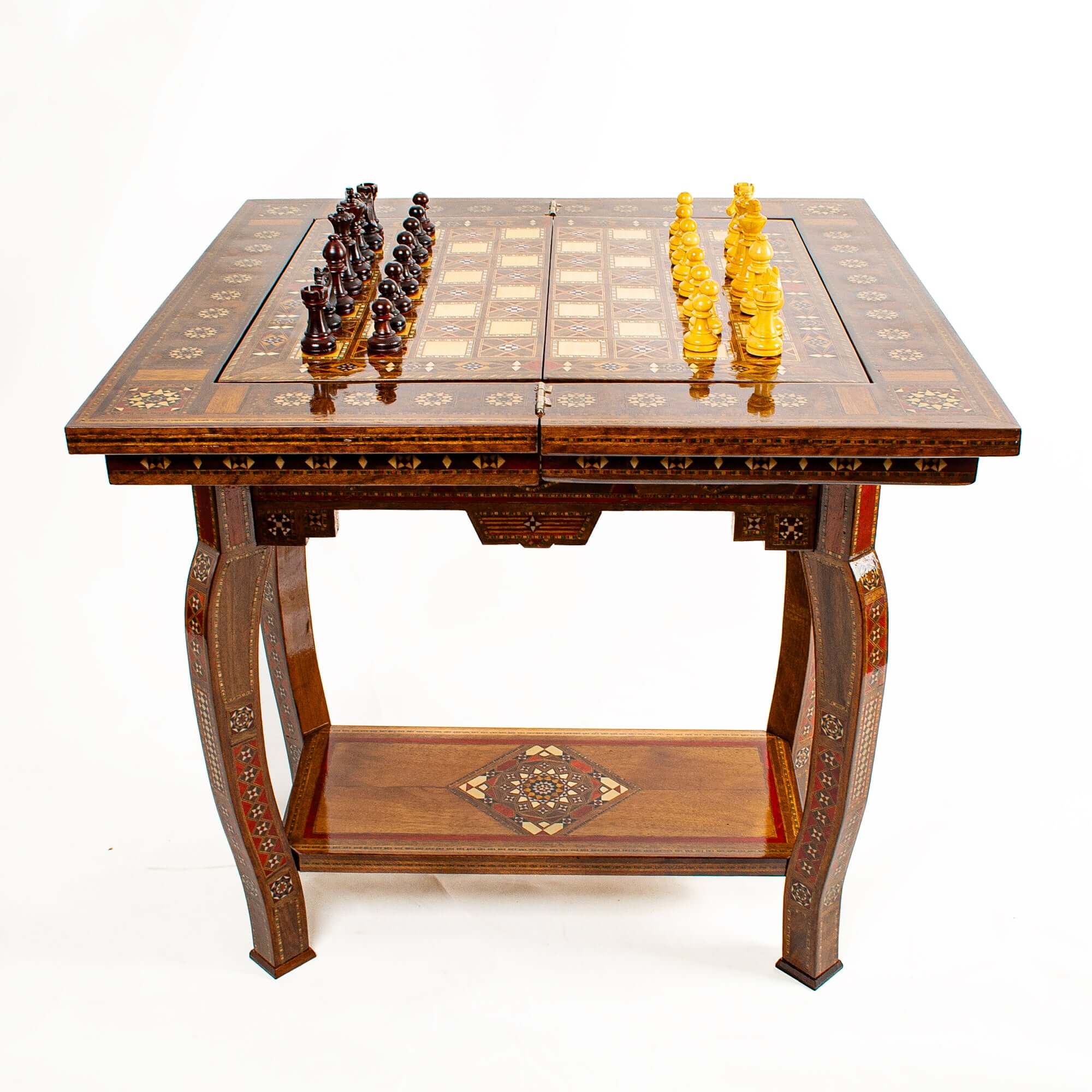

Leave a comment
All comments are moderated before being published.
This site is protected by hCaptcha and the hCaptcha Privacy Policy and Terms of Service apply.